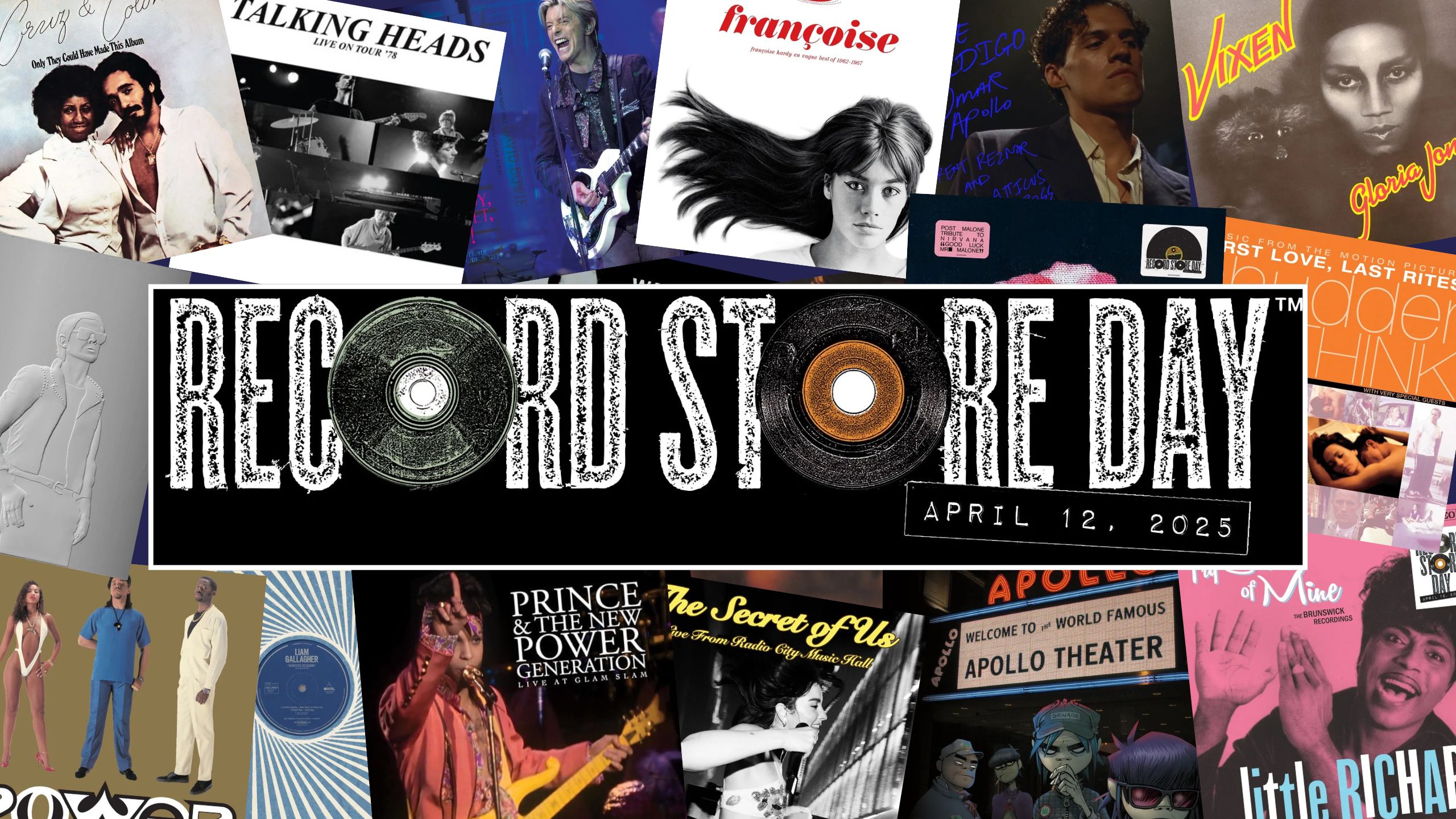Record Store Day is legendarily a space where labels—big and small—and shoppers—rich and, well, richer (RSD product doesn’t come cheap)—celebrate independent music sellers and the maverick artists who all make each other great. And FLOOD celebrates all of the above in 2025 with our most expansive preview yet.
What makes this RSD so special, beyond the publication of its first-ever book and a truly magnificent covers recording from its 2025 Ambassador, Post Malone, is its rare wealth of previously unreleased live concert recordings. Beyond the selections made for this weekend’s FLOOD guide, there are literally several hundred live RSD albums for the choosing.
Despite this embarrassment of riches (or because of it), we’ve outlined our choices for the top 45 RPMs (records to purchase merrily) below.
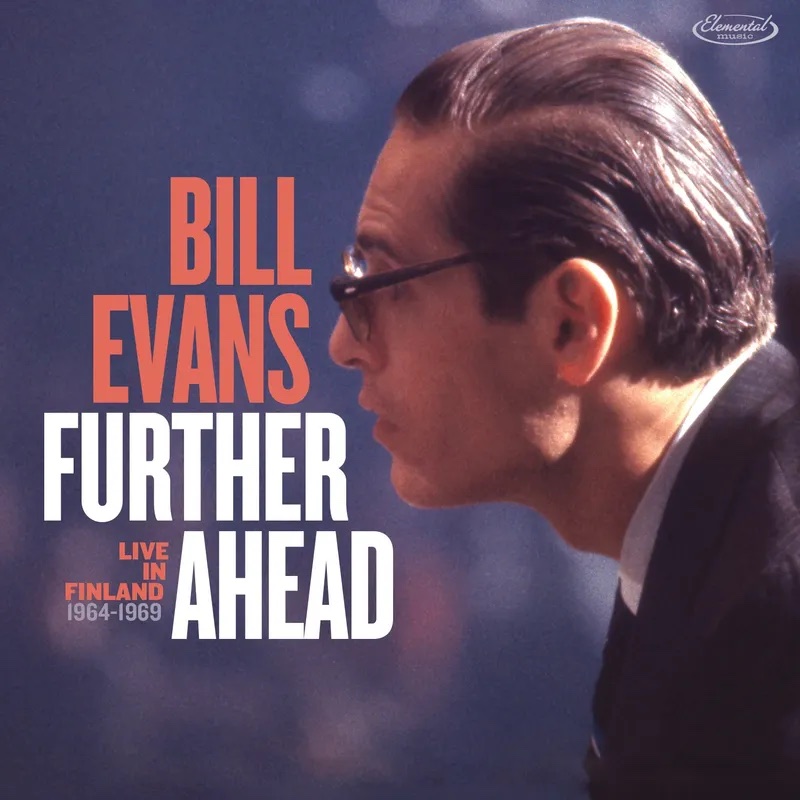
Bill Evans, Further Ahead: Live in Finland 1964-1969 (ELEMENTAL)
By this point in RSD history, Elemental Music and its jazz detective producer and curator Zev Feldman have turned the rare live moments of this impressionist jazz piano master into its own cottage industry, especially when you consider how much unheard Bill Evans there must be—and how all of it manages to be (don’t kill me, kids) better than what he released during his time on earth. The best example comes from the manner in which Evans took several of the 1960s’ most middle-of-the-road songs—“Come Rain or Come Shine,” “Autumn Leaves,” “Who Can I Turn To?”—and makes each, several times over and differently in this Finland collection, into something mesmeric, challenging, and ever-so-slightly askew in the same way he did this same package’s already-angular “’Round Midnight.” Yet Evans never detracts from each song’s mainstream and memorable brand of melancholia—I can still see my mom smoking a cigarette to Evans’ take on “Who Can I Turn To?” without imagining her thinking that his arrangement isn’t too weird for her quiet, calming, smoke rings.
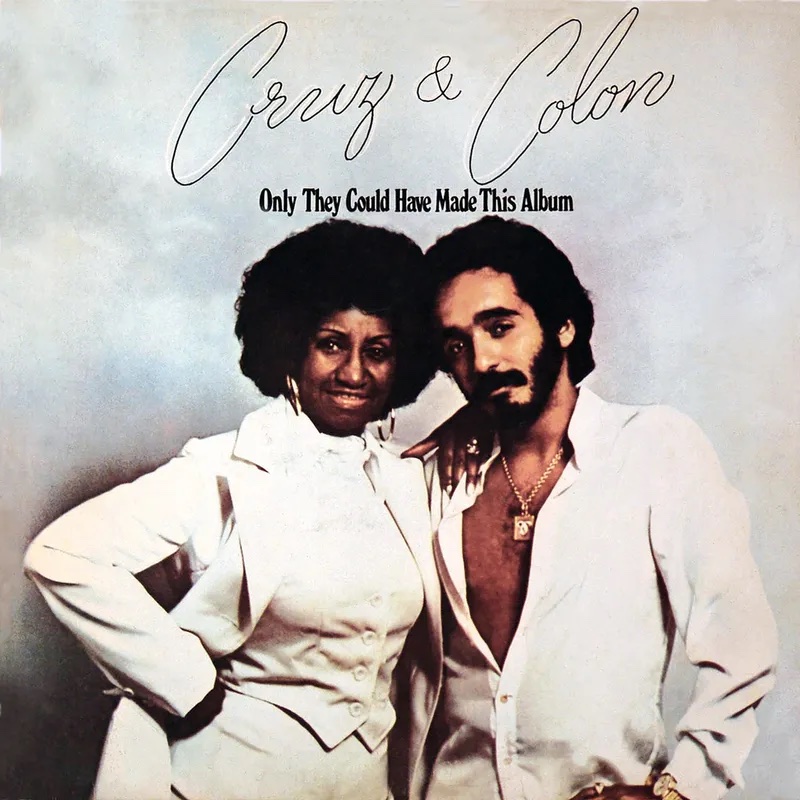
Celia Cruz and Willie Colón, Only They Could Have Made This Album (FANIA/CRAFT)
It’s not often that a Record Store Day star has their image featured on a stamp. Such is the legend, however, of Celia Cruz, the Queen of Cuban music, who by 1977 (the time of this album’s release) was in her prime. Then again, so was renegade, bad-ass salsero Willie Colón. Both vocalists try their bolero best—and win, equally—to outdo the other across this album’s litany of guaguancó, merengue, and guaracha new-school classics such as “Zambúllete” and “Todos Somos Iguales.” And on extended tracks such as the six-and-a-half-minute “Tu y Las Nubes,” heroic rhythm makers Jose Mangual and Milton Cardona take their own percussive opportunities to stretch out and jam.
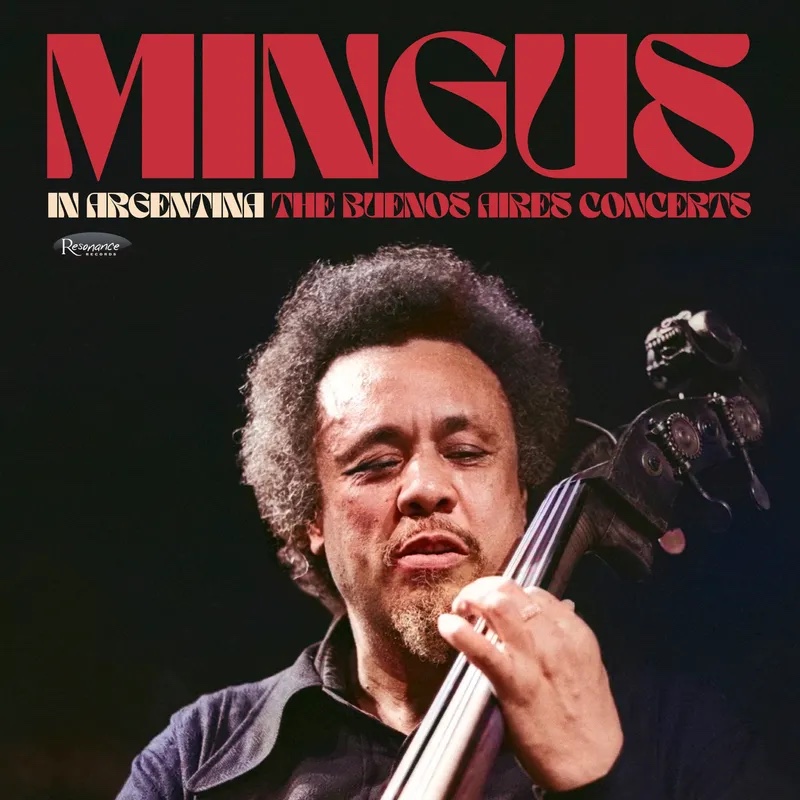
Charles Mingus, In Argentina: The Buenos Aires Concerts (RESONANCE)
Everyone who knows Mingus knows of his renown as an avatar of personality-driven collective improvisation, his hot-headedness, and his love for pushing his gospel and blues roots into the waters of the third stream. Not so often recalled (especially in connection with his latter-day work) is the quintet that he led and composed for two years before his death. Recorded at the Teatro Coliseo and Sociedad Hebraica Argentina in June 1977, Mingus, his iconic Changes-era trumpeter Jack Walrath, tenor saxophonist Ricky Ford, pianist Bob Neloms, and forever-Charlie drummer Dannie Richmond elastically and dramatically performed self-composed classics such as “Fables of Faubus” and “Goodbye Pork Pie Hat,” along with recent, equally exploratory tracks such as “Cumbia & Jazz Fusion,” “Three or Four Shades of Blue,” and the spaciously sweeping “Duke Ellington’s Sound of Love.” True Mingus-heads will be thrilled by the inclusion of several brief expressionist solo piano interludes executed by the bassist—something as rare as his full quintet in recorded mode.
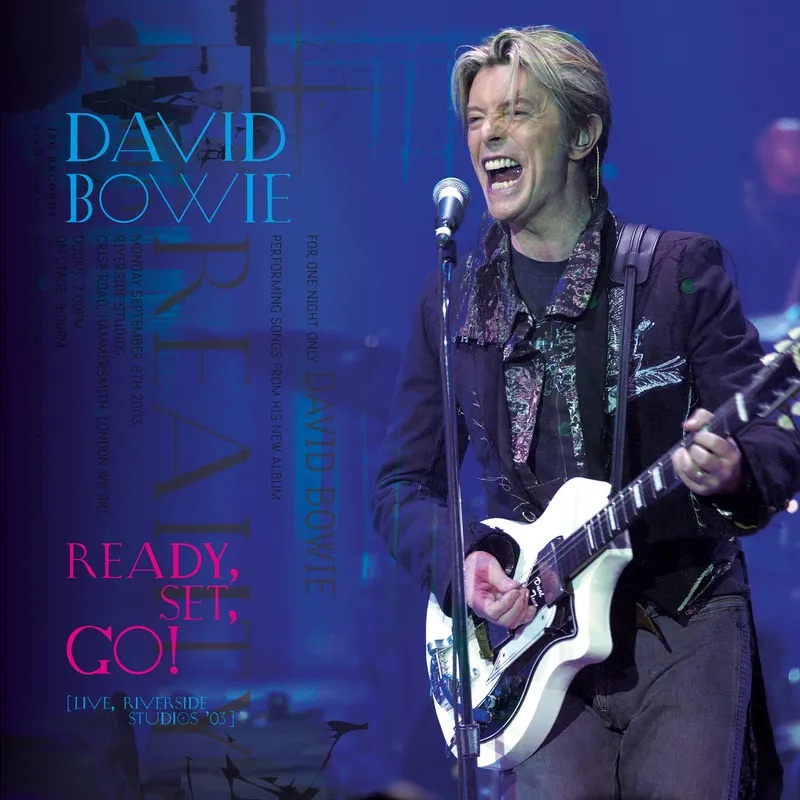
David Bowie, Ready, Set, Go!: Live, Riverside Studios ’03 (PARLOPHONE)
Before mounting what wound up as his final year-long live showcase, Bowie and his longtime band stirred up some history with the planet’s biggest-ever live and interactive music satellite event, from Hong Kong to Helsinki, for his first performance of his then-new album Reality. That the record featured Bowie music at its most contagiously rocking (“New Killer Star”) and vividly stigmatic (“Bring Me the Disco King”) was only rivalled by how truly fucking amazing Bowie sounded fronting this band. At the risk of getting pummeled by my old-school Ziggy brethren, my Diamond Dog droogs, and the sister midnights I saw nightly during Station to Station’s “Isolar” tour, this might’ve been Bowie at his live best—or at least his consistently strongest as a singer. Ready, Set, Go! is the first-ever release of the concert, and the RSD package comes with a replica poster of the original event. Plus, you get to remember how killer Bowie was as artist-avatar, live and in the studio, all over again.
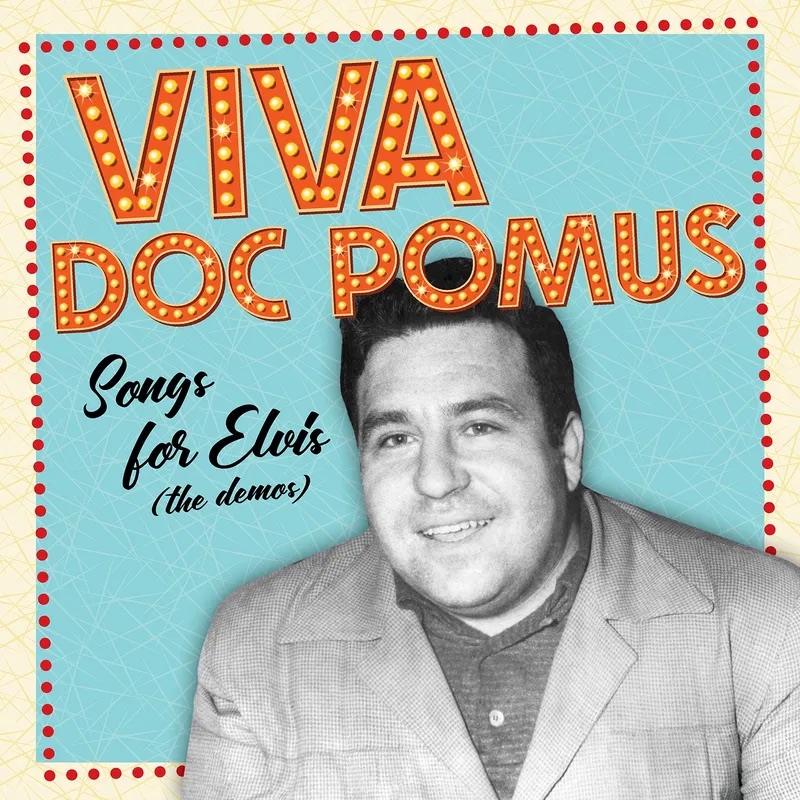
Doc Pomus, Viva Doc Pomus: Songs for Elvis (The Demos) (OMNIVORE)
Doc Pomus was a big man in every way. Large in size and heart, this Brooklyn-born Jewish songwriter—along with Leiber & Stoller—became a primary architect of early-days R&B hit songwriting for Black giants such as Ray Charles, Big Joe Turner, Ruth Brown, The Drifters, and LaVern Baker before stumbling onto the goldmine that was Elvis. With Presley an acknowledged devotee of Black artists, having Pomus (and his occasional partner, Mort Shuman) write his songs was akin to having a license to kill and the machine gun to do it with. Since it’s not as if Pomus’ demos of his Presley tracks were widely released beyond Elvis’ ears, this double RSD LP is a treasure chest of cleverly naked songcraft, one where rare doubloons such as Pomus doing Presley classics (“She’s Not You,” “(Marie’s the Name) His Latest Flame”), silly hits (“Clambake,” “Kissin’ Cousins”), and everything in between (a truly rousing “Viva Las Vegas”) rain down.
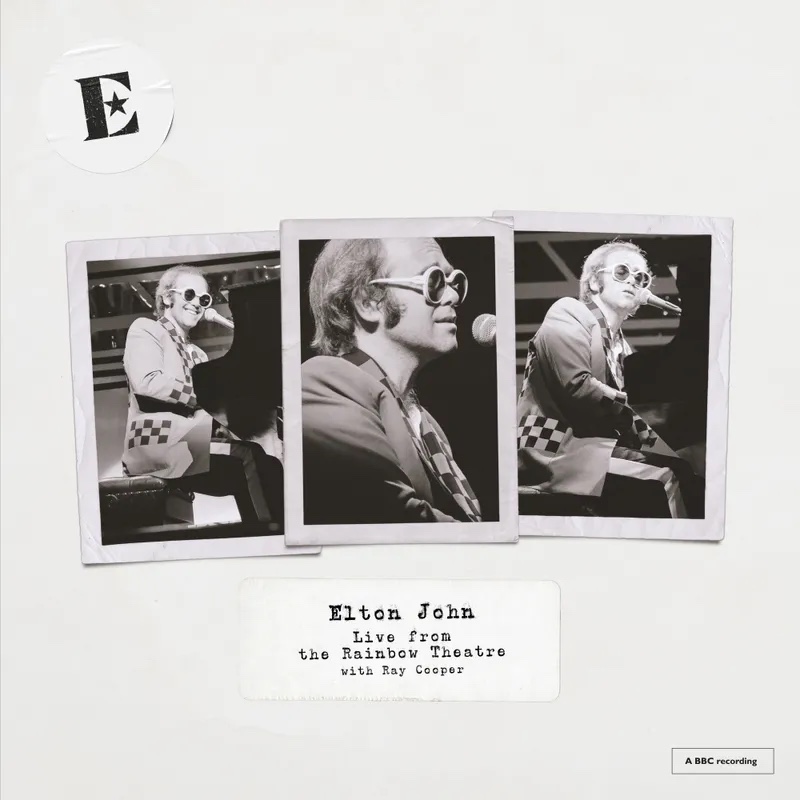
Elton John, Live from the Rainbow Theatre with Ray Cooper (UMR/EMI)
Long before Elton John went into the hit duets game with Leon Russell, Dua Lipa, and Belinda Carlile, he made a big deal out of playing solely with his longtime showy percussionist Ray Cooper. Shame this live capture of a May 1977 six-show residency between the two isn’t a Blu-ray—Cooper was a snaking whirling dervish and John played and sang his ass off on the debut of songs such as the high-flying ballad “Cage the Songbird” and “I Feel Like a Bullet (In the Gun of Robert Ford).” Rarely heard Elton classics such as “Sweet Painted Lady,” “Ticking,” and “Border Song” got soulful airings, while their teamed gamesmanship on “Tonight” and “Idol” are reasons to truly miss the fact that John is retired from the stage.
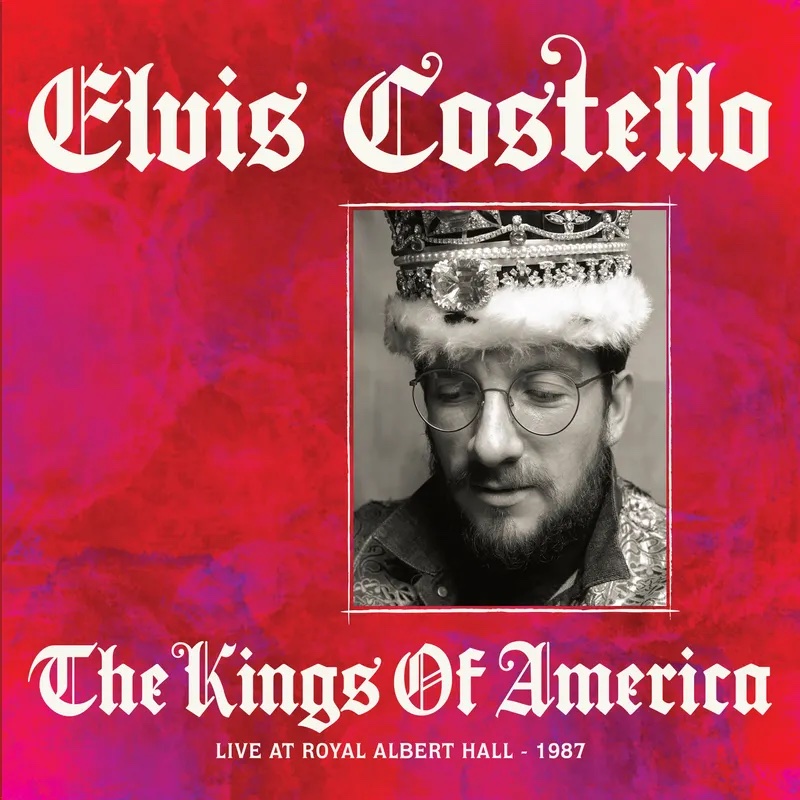
Elvis Costello, Kings of America: Live at the Royal Albert Hall (THIRD MAN)
A year deep into the earthen Americana escapade of his T Bone Burnett–produced King of America, Costello brought out the big guns for his London home show in 1987. That would be guitarist James Burton and string bassist Jerry Scheff, two cats who played with the other Elvis, along with Dylan’s recent drummer Jim Keltner, Heartbreaker Benmont Tench, and bassist T-Bone Wolk, who made his bones playing with Hall & Oates. Of course, there’s a hillbilly dedication to the winged “Brilliant Mistake” and the hiccupping “Loveable,” both Costello originals, both from Costello-Burnett’s 1986 studio LP. But country-tinged covers of Buddy Holly’s “True Love Ways,” James Carr’s sour-soulful “Pouring Water on a Drowning Man,” and Mose Allison’s blowsy “Your Mind Is on Vacation” are the awesomest reasons to shop Third Man this RSD season.
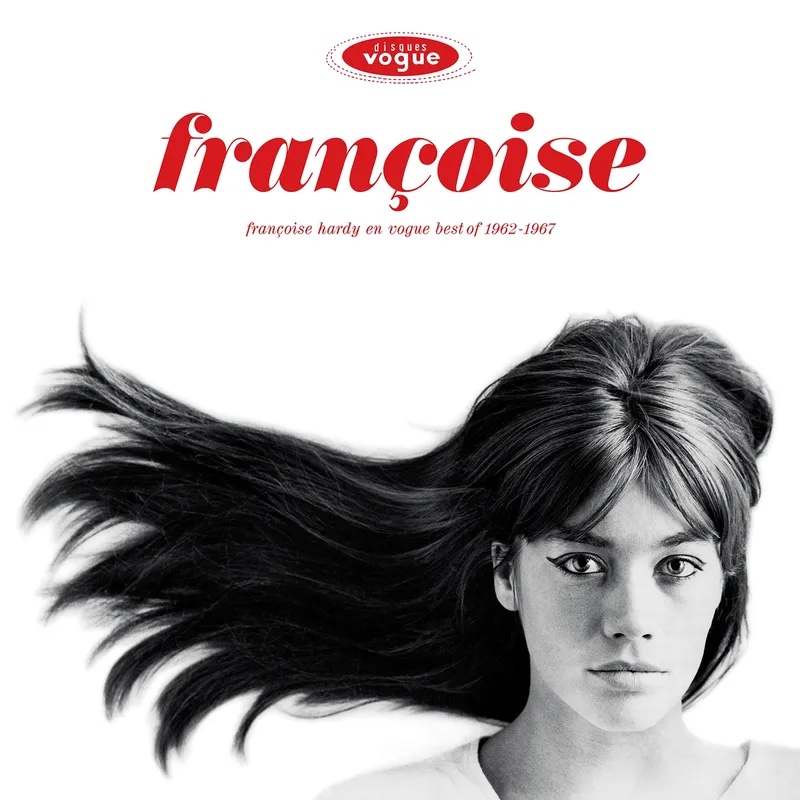
Françoise Hardy, En Vogue: Best Of 1962–1967 (OMNIVORE)
When electronic musician Thomas Dutronc announced that his mother—actress, model, and vocalist Françoise Hardy—had passed last summer, it was as if a long-cherished era of breathy French cool and angsty soigné existentialism had evaporated in a cloud of smoke. Starting in the early 1960s, Hardy became the deadpan voice of dry dismissiveness and chilly demeanors wrapped around the steam heat of sensuality—a quiet storm that allowed smash pop hits (such as “Tous les Garcons et les Filles”), a smoldering entrée into the writing of Serge Gainsbourg (“It Hurts to Say Goodbye”), a poem on the back of Another Side of Bob Dylan in dedication to her standoff-ish beauty, and a take on Leonard Cohen’s “Suzanne” that’s the pinnacle of distressed romanticism. Plus, En Vogue’s two LPs are pressed on opaque red vinyl.
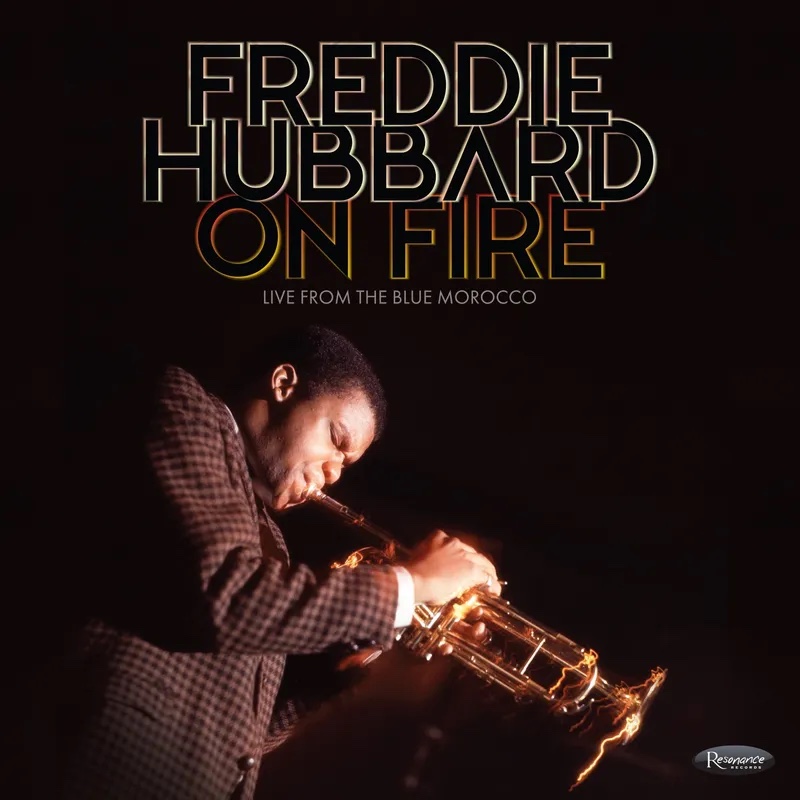
Freddie Hubbard, On Fire: Live From The Blue Morocco (RESONANCE)Though he’d been a hard-bop boss for the better part of the 1960s, when trumpeter Freddie Hubbard hit 1967, he raged. Whether it was his album Backlash and its follow-up The Hub of Hubbard or this never-before-released live recording from the Bronx, this man’s tone was brilliantly beautiful and clear and always set, energetically, for guns’ blazing. And whatever was in the water during this Blue Morocco run, Hubbard’s company of men on the brisk “Crisis” or the slow-burning likes of “Bye Bye Blackbird” and “Summertime”—Kenny Barron, Bennie Maupin, Herbie Lewis, Freddie Waits—play as if their lives and the life of their sessions’ leader depended upon it. Though the term was taken by a sound in the 1920s, this is what “hot jazz” is all about.
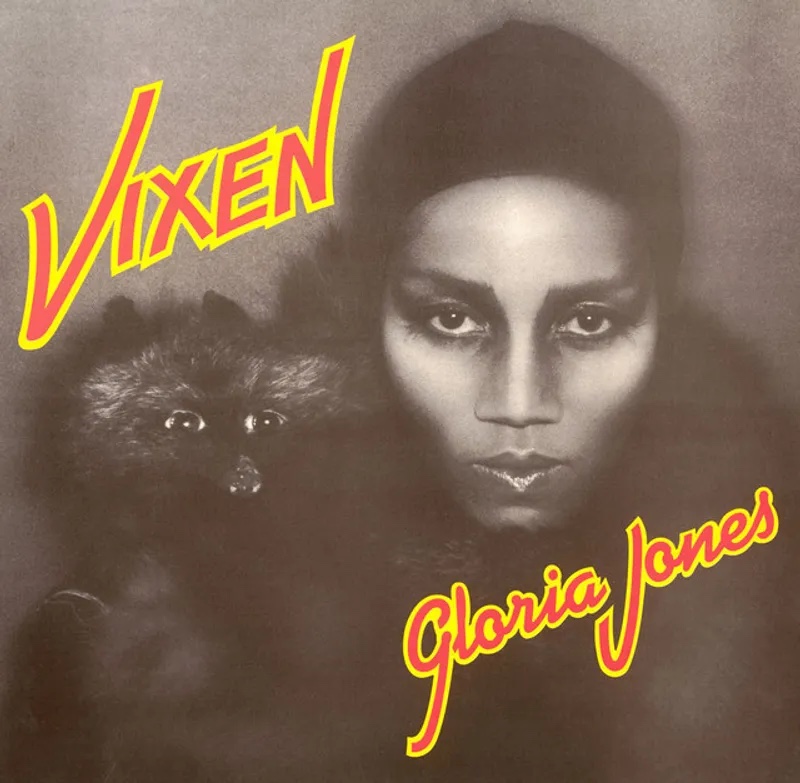
Gloria Jones, Vixen (RHINO)
Cincinnati-born R&B vocalist Gloria Jones is best known for two things in the UK: becoming the “Queen of Northern Soul” after recording songwriter Ed Cobb’s “Tainted Love” as something lurid yet lusciously alive and vivacious, and having a controversial relationship with Marc Bolan that inspired this RSD’s album and its two-part boogie-down rendering of his band T. Rex’s “Get It On,” before being involved in the car crash that killed him. This is the first time that Vixen has been repressed since its initial 1976 release (and the first time it’s been properly released in the US), and searing songs such as “Cry Baby,” “High,” and “Would You Like to Know” ache with passion and drip with soul. And “Drive Me Crazy (Disco Lady)” is simply cool, campy fun. Come home, Gloria Jones, all is forgiven.
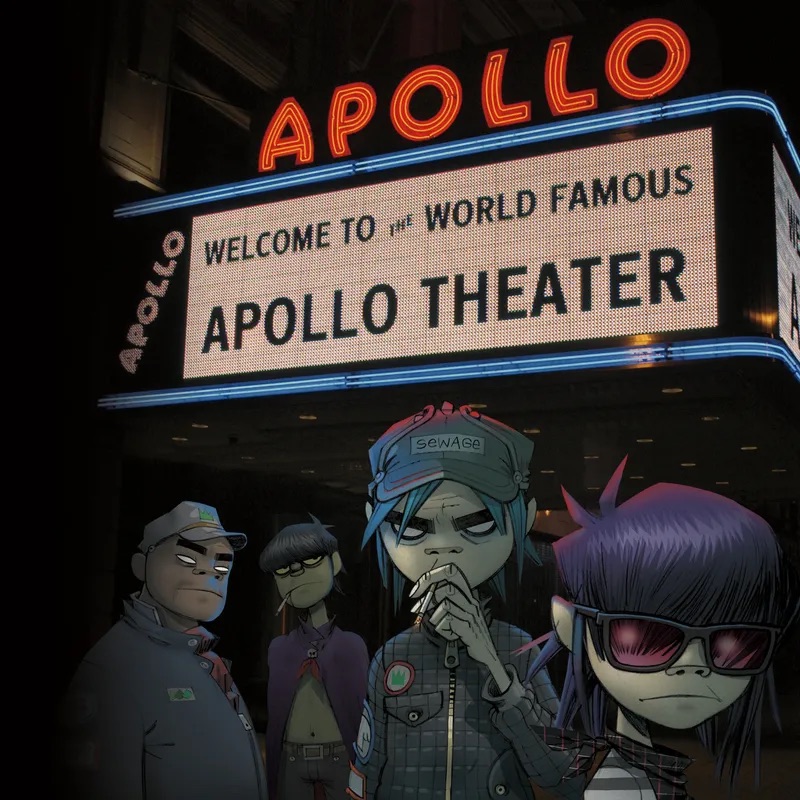
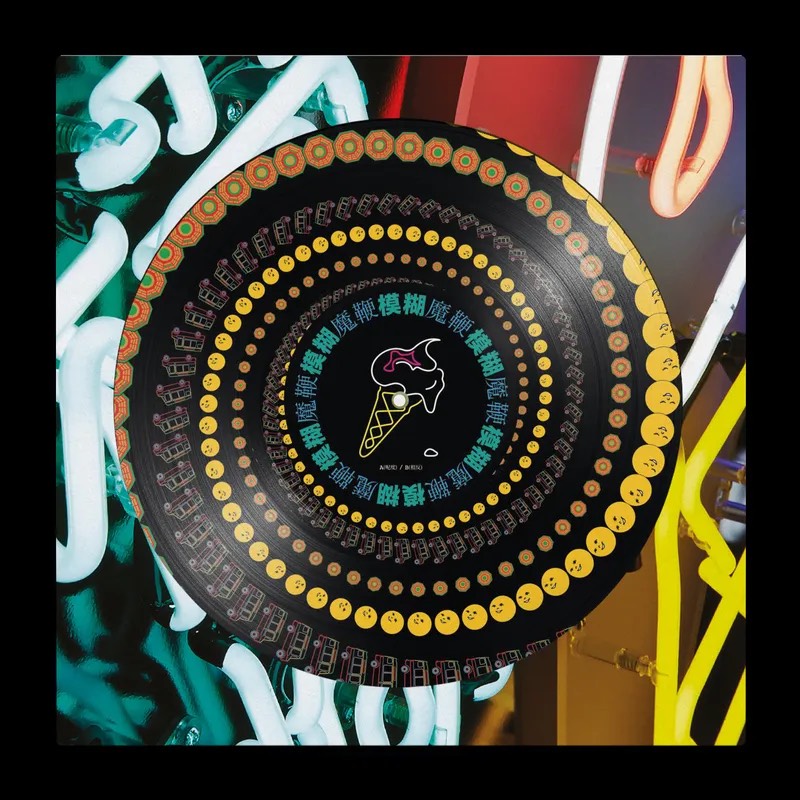
Gorillaz, Demon Days Live From the Apollo Theater (PARLOPHONE)
Blur, The Magic Whip (PARLOPHONE)
Damon Albarn would probably hate me for cobbling his two bands into one block, separate entities as he believes the art-pop Blur to be from the cartoony electro-ragga-hop of Gorillaz. Yet by the time he and his cohorts in Blur got around to their first new music since 2013’s Think Tank (longer, if you include co-founder Graham Coxon having jumped ship during those sessions), the goals of both bands grew closer and equally animated by his lyrical affectation toward alienation and ennui on Whip tracks such as “Ghost Ship” and "Thought I Was a Spaceman.” Plus, the Blur dub of “New World Towers” is but a mere inch away from Gorlliaz’s Lee-Perry-on-Special-K sound. And as far as live experiences go, by the time the disco-funk comic book band hit Harlem’s Apollo, their sound was akin to Bowie’s Lodger come to life—something enveloping woeful world music, Bootsy’s Rubber Band’s bounce, and their own Wire-y angles. If Albarn wants his bands to sound nothing like each other, he’s going to need a bigger boat and a third act.
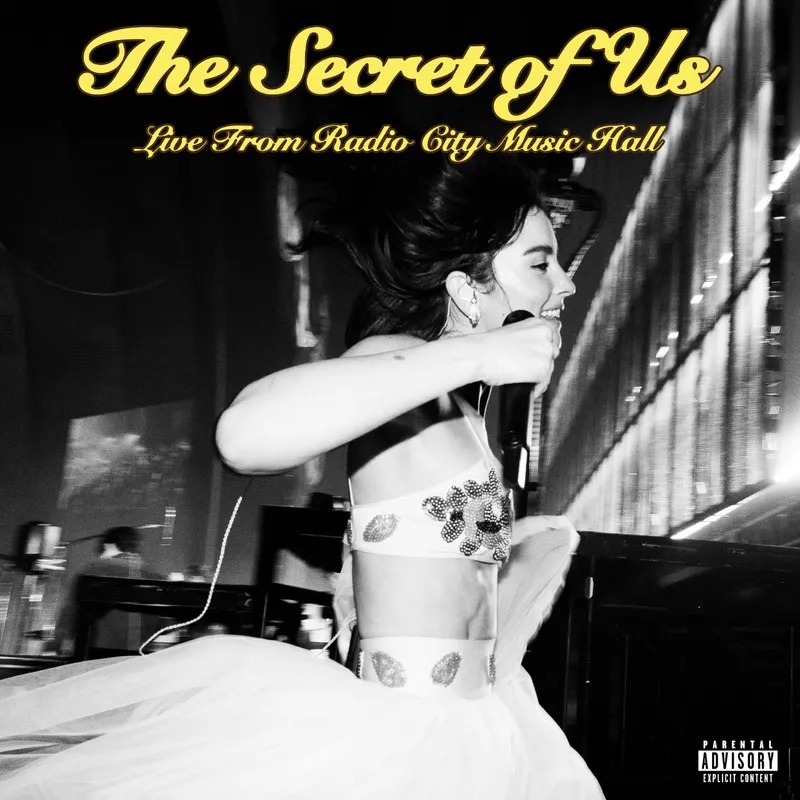
Gracie Abrams, Live From Radio City Music Hall (INTERSCOPE)
Without pretending that I’ve been a huge fan of Taylor Swift–lite, Gracie Abrams, all along, I can’t tell you how impressed I was by the folksy fullness of this RSD item and Abrams’ voice in a small live setting such as Radio City Music Hall (hearing her open for Swift in an outdoor stadium did nothing for Abrams’ vocals or songs) and the resonating rumination of her saddest, most emotional tracks such as “I Love You, I’m Sorry” and “Gave You I Gave You.” Also, there’s a cocksure quality to the live one-two-three punch of “Packing It Up,” “Good Luck Charlie,” and “I Knew It, I Know You” that’s pretty cool.
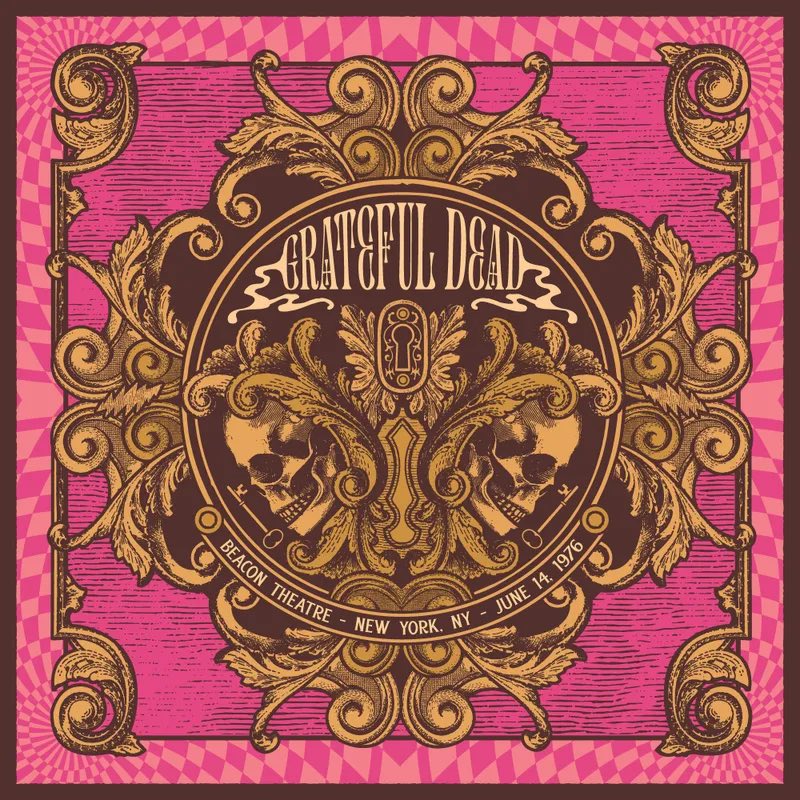
Grateful Dead, Beacon Theatre, New York, NY 6/14/76 (RHINO)
Having previewed Dead albums in this RSD space many times before, I’m sure I’ve mentioned the words “ultimate” and “greatest” in signaling yet another (and another) bootleg Jerry classic. Truly, though, the June 1976 show at NYC’s Beacon Theatre has forever been the stuff of liquid psychedelic legend—like seeing Bigfoot, or running headfirst into Brando. Listening carefully to this box’s takes on the Dead’s wildly reimagined “Lazy Lightning” and “Franklin’s Tower,” the Munch-esque expressionist howl of “The Wheel,” or the fried crispy version of “Cosmic Charlie”—agog.
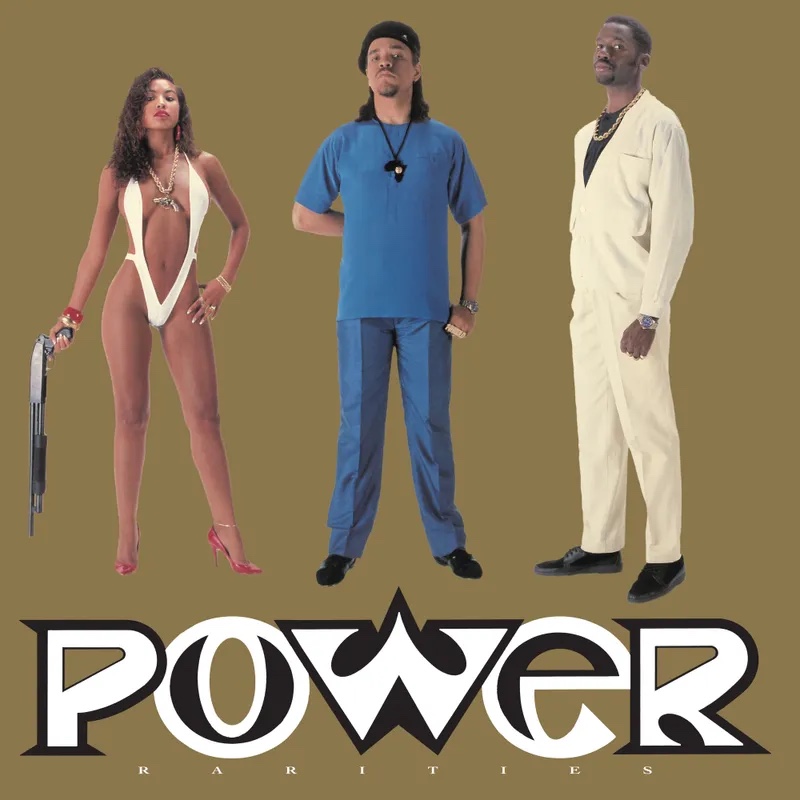
Ice-T, Power Rarities (WARNER/RHINO)
The Iceberg may have been darker, and his Body Count band’s first album may have been more incendiary, but if you’re looking for Ice-T at his purest hip-hop essence with a sound at one with its riveting beats and gripping lyrics—to say nothing of his staticky, halting flow—look no further than Power and this RSD volume’s rarities. The remixes of “The Hunted Child” and “High Rollers” (the latter a slice of life from the end of an era when hustlers and pimps ruled the West Coast) are both vital to the rap canon, while “Colors,” in its 12-inch extended version here, is still one of hip-hop’s most diabolical-sounding tracks. Debuted first in 1988 as part of a Dennis Hopper’s gritty drama of the same name, “Colors” is slow-rolling menace on wheels—all slithering ambient backgrounds, that cheap one-hit drum machine snagged from Schoolly D records, and Ice-T’s fear-filled chilly warnings about the violence to come. Don’t let his Law & Order cred sway you: Ice-T is still a king of the streets when it comes to West Coast hip-hop.
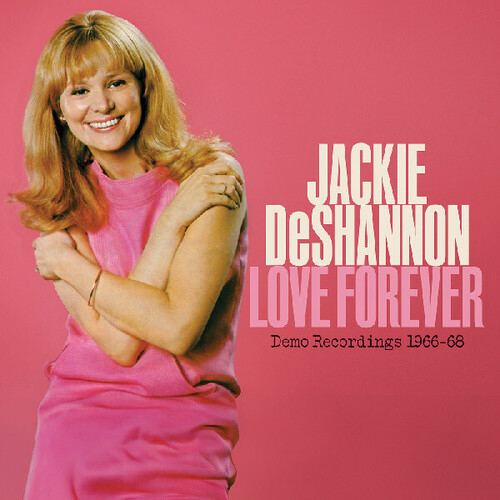
Jackie Deshannon, Love Forever: Demo Recordings 1966-1968 (REAL GONE MUSIC)
Jackie DeShannon was renowned throughout the 1960s’ AM radio pop charts for her deep and expressively voiced hits such as “What the World Needs Now Is Love” (the only singer who could rival Dionne Warwick with a Bacharach/David song) and the winsomely anthemic “Put a Little Love in Your Heart.” Yet the listening world-at-large never knew much about her craftsmanship as a songwriter, its more personal vision, or her gospel-country Kentucky birthright’s roots. That’s what Love Forever and its 16 raw-recorded demos is for: presenting a superior artist everyone thought they knew working out her personal jams and her relational issues on songs such as “Rose Colored Glasses,” “Distraction,” and the sensually semi-psychedelic “Only You Can Free My Mind.” Great album all the way around, and one that hopefully opens the door to more Jackie Deshannon rarity collections.
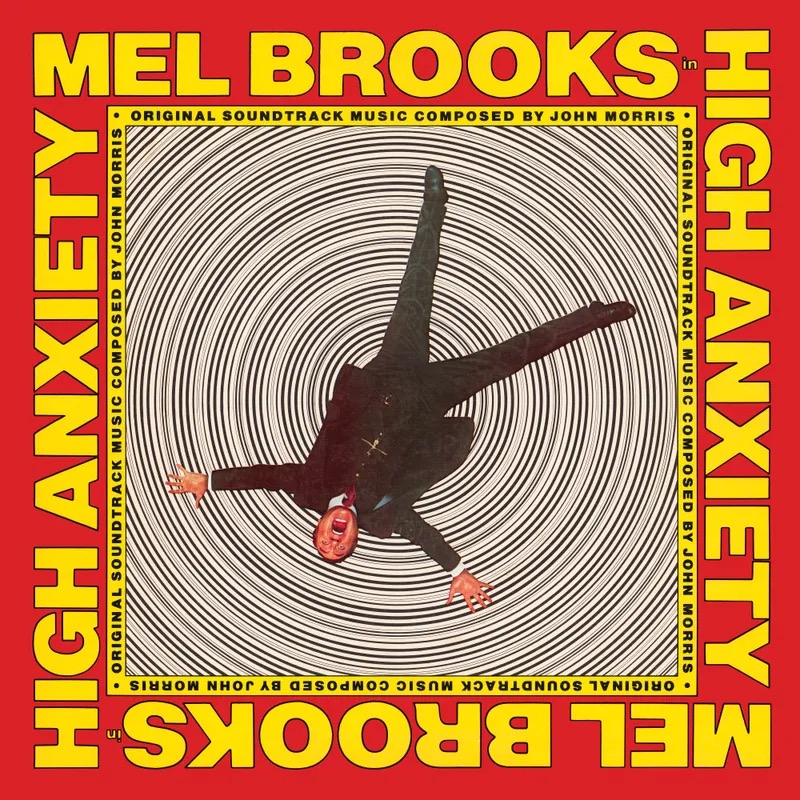
John Morris, High Anxiety: Original Soundtrack / Mel Brooks’ Greatest Hits Featuring the Fabulous Film Scores of John Morris (RHINO)
Though there’s raucous humor to be found in Mel Brooks’ lyrics set to composer John Morris’ epic score-scapes, what made this music special is the same thing that made Brooks’ brand of cinema unique: dedication to period detail. Brooks directed and designed his films with theatrical authenticity as primary goal: Young Frankenstein’s mad doctor’s laboratory with its Pabstian lighting angles and buzzing, lightning-driven machinery came from Universal’s original 1931 Frankenstein; the dusty trails and bold color palates of Blazing Saddles looked similar to John Ford’s prairies. To such legitimacy, Morris composed his grand scores with their rippling strings and warm brass—and, yes, the occasional kinky sound effect like a whip’s snap during the “Blazing Saddles” theme sung with thick masculinity by the legendary Frankie Laine. For Brooks’ Hitchcock-lite High Anxiety and its piss-take on Vertigo and North by Northwest, Morris played up the Bernard Herrmann-esque score of dizzying sinister strings, save for one song: the saloon ballad turned big-band anthem “High Anxiety” with Brooks doing his best Sinatra impersonation.
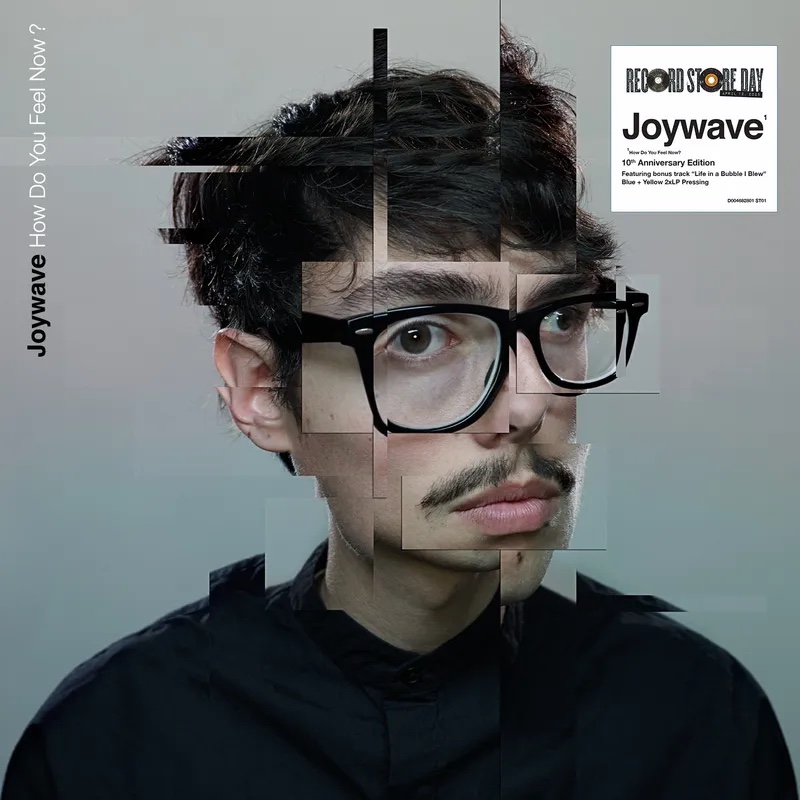
Joywave, How Do You Feel Now? [10th Anniversary Edition] (HOLLYWOOD)
One whole decade of Rochester, New York’s radical electro-rawk quintet Joywave’s debut doesn’t seem quite real, as How Do You Feel Now? sounded 20 years ahead of the curve then with its mix of humming, loud ambience, groove-conscious dance reverie, and singer/producer Daniel Armbruster’s textural approach to actorly song. Plus, the whole messily manicured party features what should be a 12-inch rarity in “Life in a Bubble” as well as a yellow and blue vinyl swirl to the proceedings. Joy, indeed.
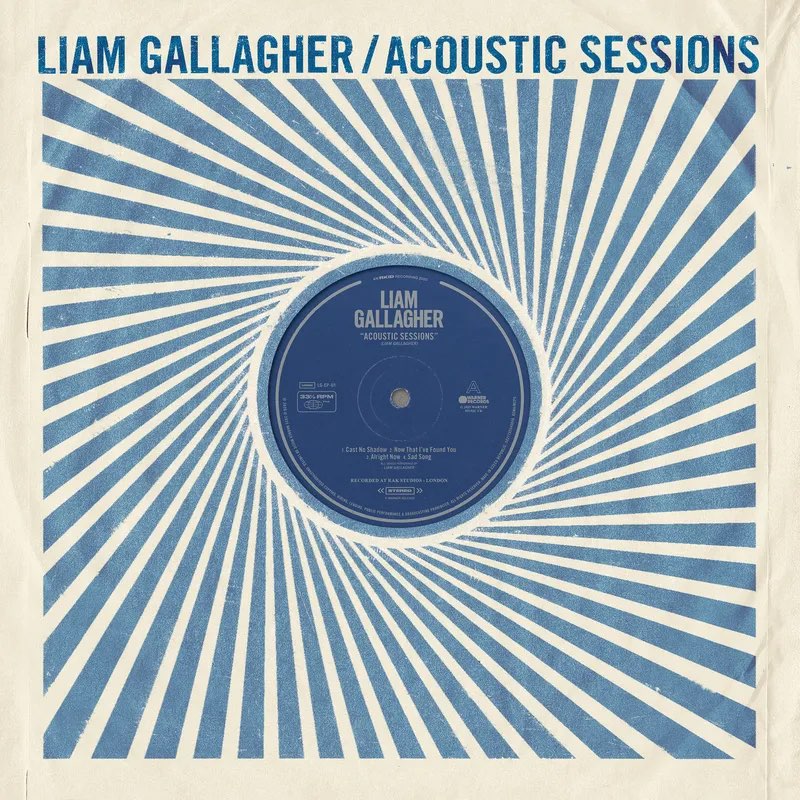
Liam Gallagher, Acoustic Sessions (WARNER)
The four-LP RSD Oasis album Time Flies… 1994-2009 is already sold out in pre-order (that seems wrong), so I won’t bother going on about it. However, there are a few things to love about Gallager bro Liam’s stripped-to-the-bone Acoustic Sessions that warrant real attention. For vinyl heads, the record is done up in color-in-color silver and blue with each copy individually hand-pressed so that your Liam won’t be the same as my Liam. Then there are streamlined, sketchbook versions of songs from his 2019 solo album, Why Me? Why Not. to consider. Lastly, for those of you who didn’t get Oasis tickets or secure a copy of Time Flies…, Liam sings some of the band’s songs such as “Cast No Shadow,” “Sad Song,” and “Stand By Me.” So just buy this and stop bellyaching.
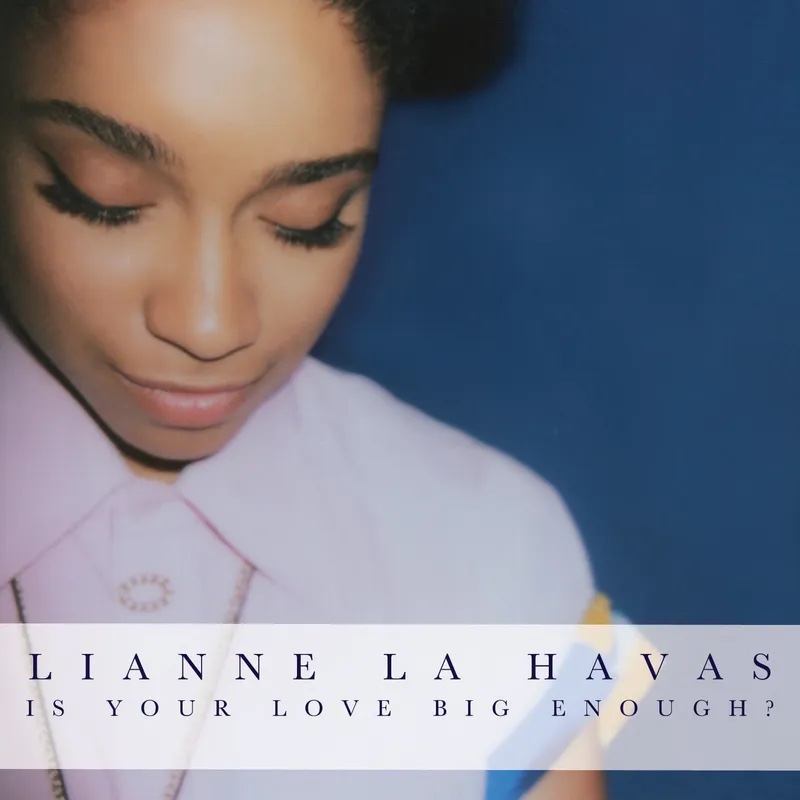
Lianne La Havas, Is Your Love Big Enough? (NONESUCH)
Such an odd yet lovely choice to get pulled out of the ether for a first-ever vinyl release: British songwriter Lianne La Havas’ 2012 debut album—which went on to get nominated for that year’s Mercury Prize and a 2013 Ivor Novello Award—is deeply, charmingly soulful and enigmatically lyrical. There’s not one song that sounds like the next one, yet this eclectic package somehow holds together cohesively. If you could imagine Sade going just a little bit faster with a little less smoothed-over polish and more emotional weight, you’d come close to the might and righteousness of Is Your Love Big Enough?
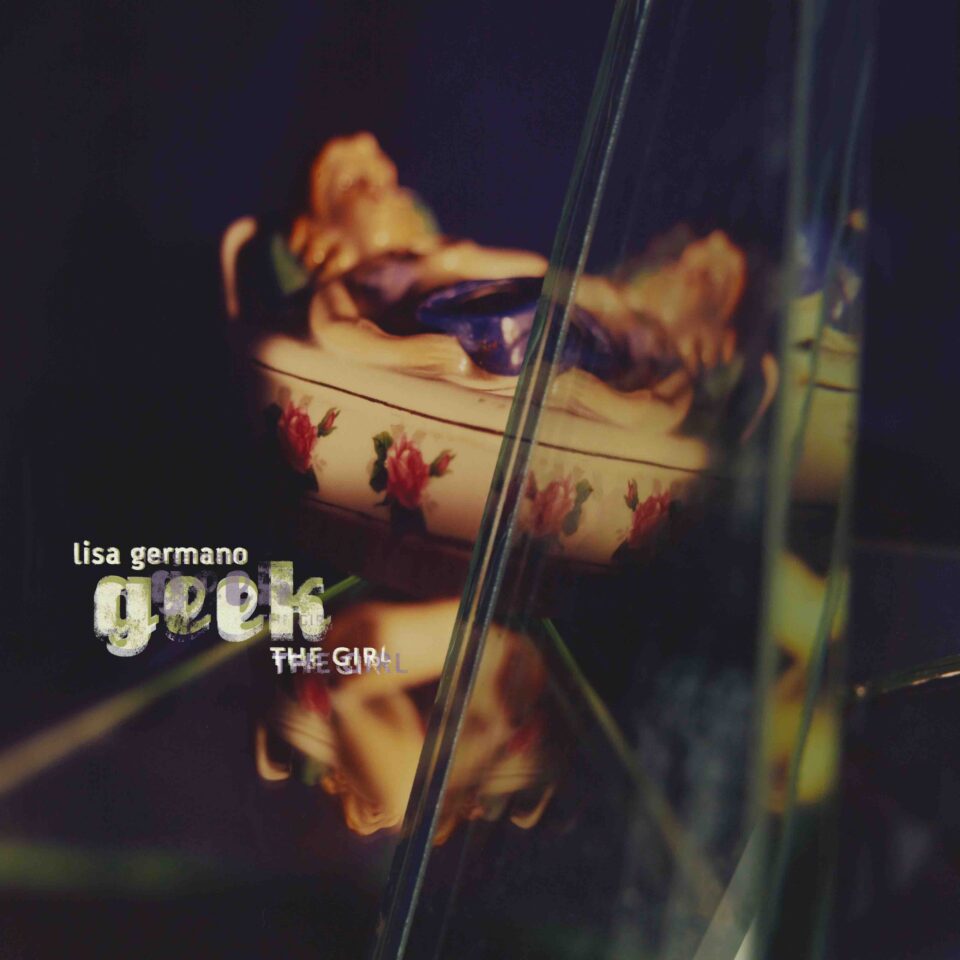
Lisa Germano, Geek the Girl + Inconsiderate Bitch EP (4AD)
Few young artists have had a voice—literal and figurative—with the dark intensity of Lisa Germano, a vibe which enveloped the listener from the first notes. Once she came out of the gate as a solo singer, composer, and multi-instrumentalist after playing violin in John Mellencamp’s band, her weighty, folk-inspired work towered over so much other song from the early 1990s as it was violently gnashing yet delicately nuanced. And no album and its side EP carried as much weight as Geek the Girl and Inconsiderate Bitch in their time. Run through with chunks of Sicilian folk music as its interstitial through line, hardcore topics such as rape (“Cry Wolf”), stalking (“A Psychopath,” complete with an actual 911 police call), and up-close menace (“My Secret Reason”) fill the holes in Geek the Girl’s mad and moaning melodies. In celebration (is that the right word?) of the releases’ 30th anniversary, Germano’s double-daring efforts get their first-ever vinyl pressing with a rare B-side “The Mirror Is Gone” and new art utilizing stills from the initial cover shoot by photographer Dominic Davies.
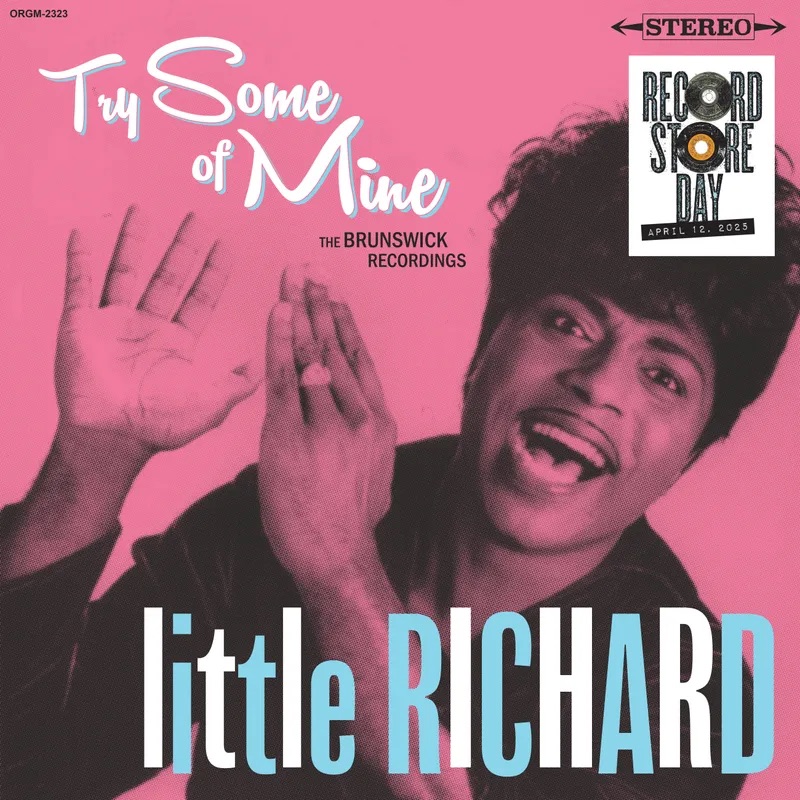
Little Richard, Try Some of Mine: The Brunswick Recordings (ORG)
By 1968, the initial rush of rock ’n’ roll’s sass may have been tamed, but nobody told the ever-explosive Little Richard, who continued to whomp-ba-ma-loom-bam his way through the recording studios and record labels of America with the gospel fervor of his youth. There are production considerations given over to these post–Summer of Love sessions for Brunswick Records, with their tentative touches of psychedelia and powerhouse guitars on tracks like “She’s Together.” But from “Baby Don’t You Tear My Clothes” and “Stingy Jenny” and beyond, Try Some of Mine—pressed on transparent pink color vinyl—is pure vintage Little Richard, unhinged and unmoored.
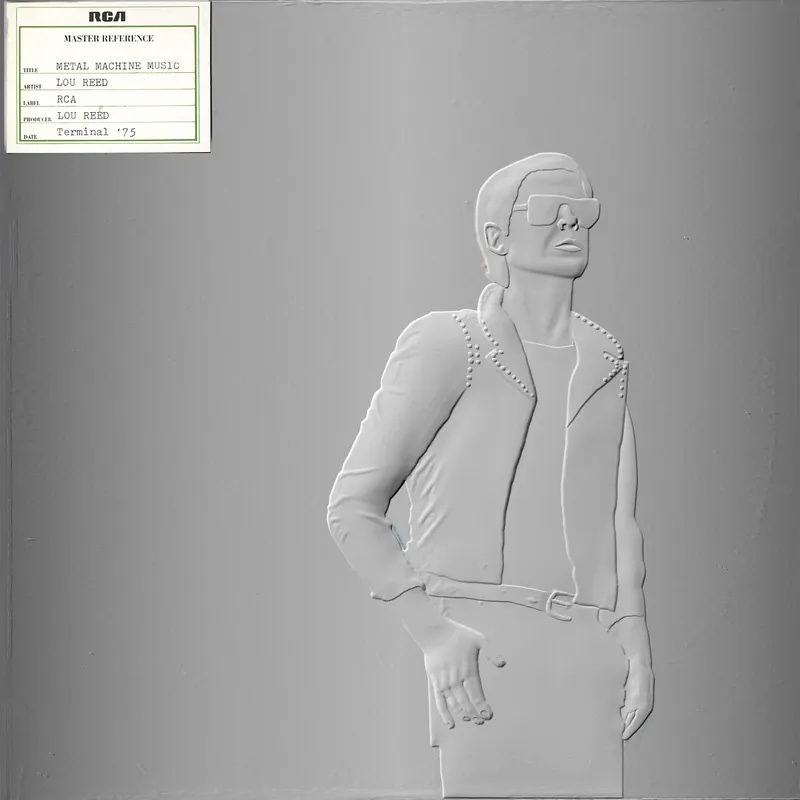
Lou Reed, Metal Machine Music [50th Anniversary Edition] (LEGACY)
Only Lou Reed could willingly crash his own career—or at least bust his contract with his then-label, RCA—by recording a double album of nothing but guitar effects, modulated feedback, and white noise mixed at varying speeds, then have the guts to additionally release a Quadrophonic version (subtitled The Amine β Ring) at the same time. Its new 50th anniversary edition is treated like Abbey Road and The White Album combined with newly pressed metallic silver vinyl LPs and a gorgeous, raised-embossed cover emulating the sunglasses-wearing Lou photo from the original album. It almost makes you want to actually listen to it.
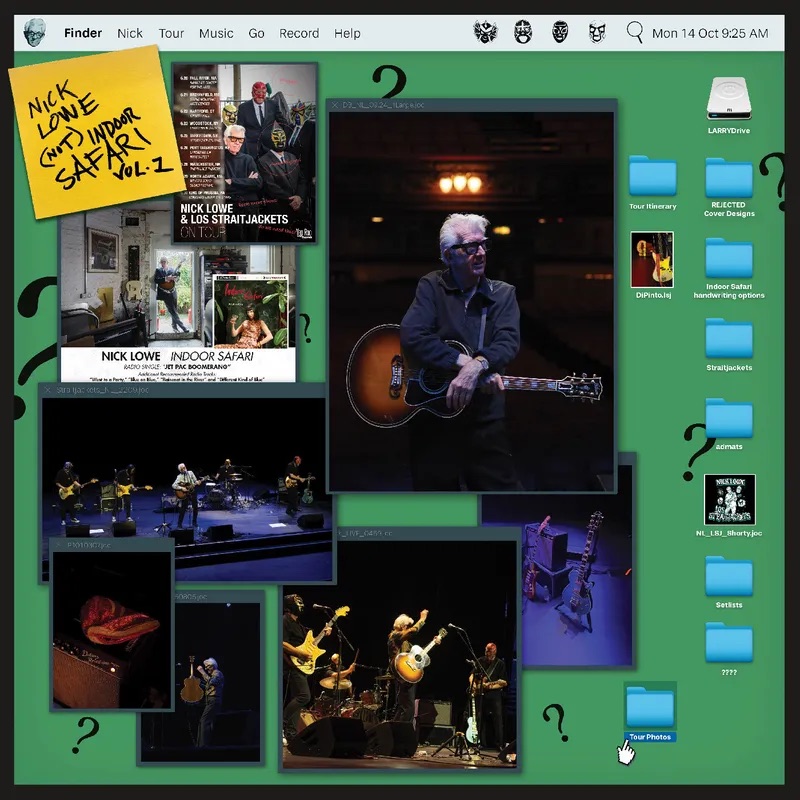
Nick Lowe & Los Straitjackets, (Not) Indoor Safari Vol. 1 (YEP ROC)
If you’re a fan of power-pub-rock icon Nick Lowe, his latter-day revolutionary reconstitution with the hiccupping-surf-loving Los Straightjackets, and their conjoined 2024 trailblazing tour, then this RSD red-hotly recorded live album is for you. The Los Lowe Nick Jackets stir it up hardcore like playboy mixologists on swaggering cuts such as “Lay It on Me Baby” and “Trombone,” as well as more recent Lowe tunes such as “Blue on Blue” and the aptly titled “Lately I’ve Let Things Slide.” And if you can’t help requesting the hits, there’s always new surf-punkish versions of “(What’s So Funny ’Bout) Peace, Love and Understanding” and “When I Write the Book” with which to contend. Hearing “I Live on a Battlefield,” “House for Sale,” and “Tokyo Bay,” back to back to back again—just like they did in concert—makes me wish this was a video package as well as a black vinyl record. Yep Roc, make it so.
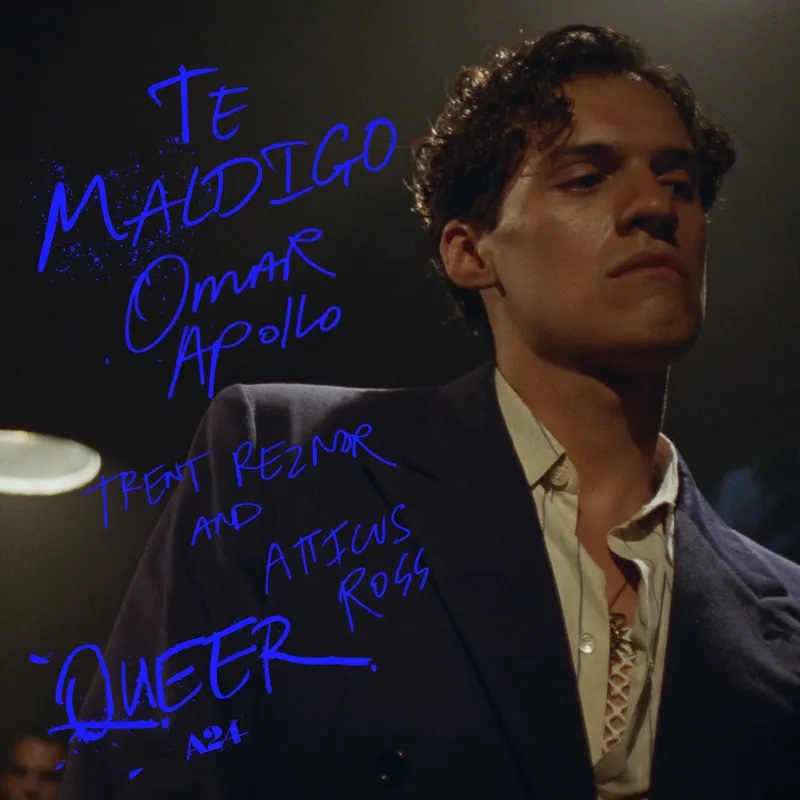
Omar Apollo & Trent Reznor and Atticus Ross, Te Maldigo (WARNER)
Taken from the tales of madness that was William S. Burroughs’ novella of the same name, filmed by notable director Luca Guadagnino and starring Daniel Craig in his most daring role yet, everything about Queer—including its undulatingly hypnotic score by Trent Reznor and Atticus Ross—spelled Oscar gold. Until it didn’t. What truly deserves some award, even its own RSD 7-inch single, is “Te Maldigo,” the jazzily sensualist and emotive ballad sung to delirious, soft effect by Omar Apollo. Acting in Queer, grasping the microphone and performing this unusually tender Reznor/Ross cut in a smokey bar, reaching that ecstatic falsetto high near the end of the song—yeah, give them the Oscar for this.
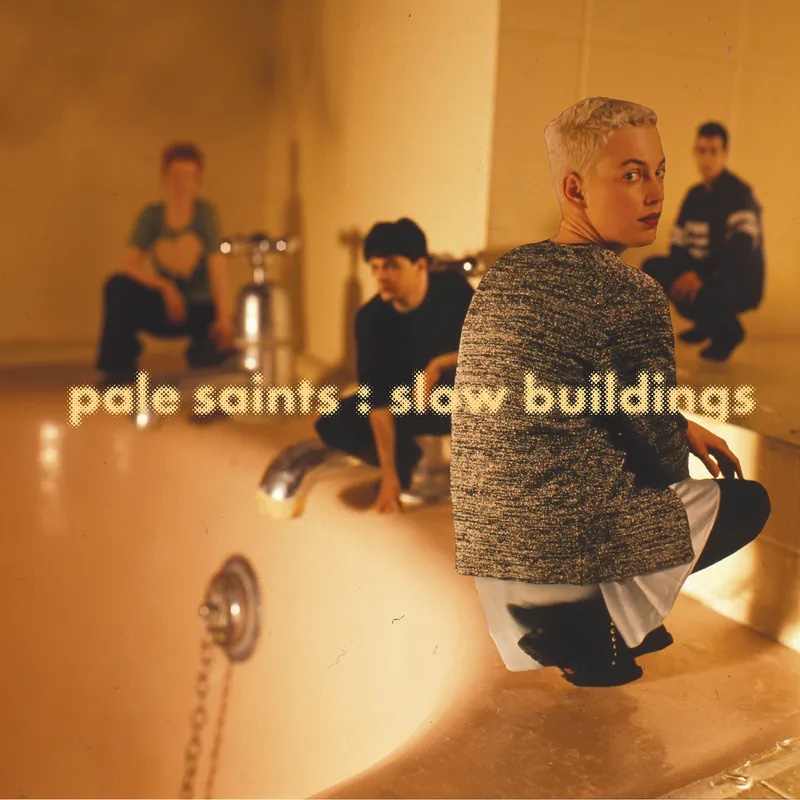
Pale Saints, Slow Buildings [30th Anniversary Deluxe Edition] (4AD)
Pale Saints didn’t last long enough to see past this third and final collection of their epic, gauzy recordings. But if this comingling of Slow Buildings, their Fine Friend EP, and a handful of unheard tracks and demos says anything, it’s that the stargazing shoegaze genre rarely saw finer—giving even My Bloody Valentine and Lush (the band that Pale Saint guitarist-singer Meriel Barham came from) a run for their money. Adding a vividly colorful chamber-esque trio of cello, trumpet, and flute aided in subtly sweetening Slow Buildings’s rarified air, and long tracks such as “Suggestion” and “Song of Solomon” ache to be played loud due to their prog-rock nuances. Pale Saints were ahead of their time.
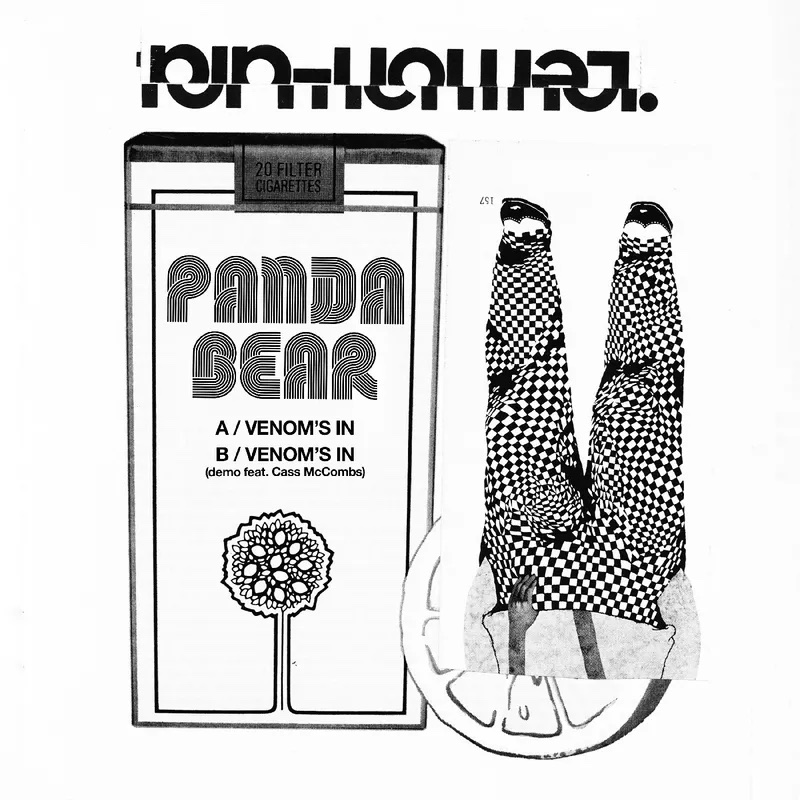
Panda Bear, Venom’s In (DOMINO)
I don’t often waste a lot of RSD real estate on 7-inch singles, but this one’s pretty dramatic, as it takes one of Noah Lennox’s lilting, analog SoCal-meets-São-Paolo tracks from the poppy new Sinister Drift album and hands its demo B-side over to Cass McCombs to weigh in on (Beck does something similar to an old George Harrison song for RSD 2025). But to take something this fresh as “Venom’s In” and find another equally poppy but decidedly preternatural sound such as that of McCombs? Well, that’s why Lennox is Panda Bear, and you’re not.
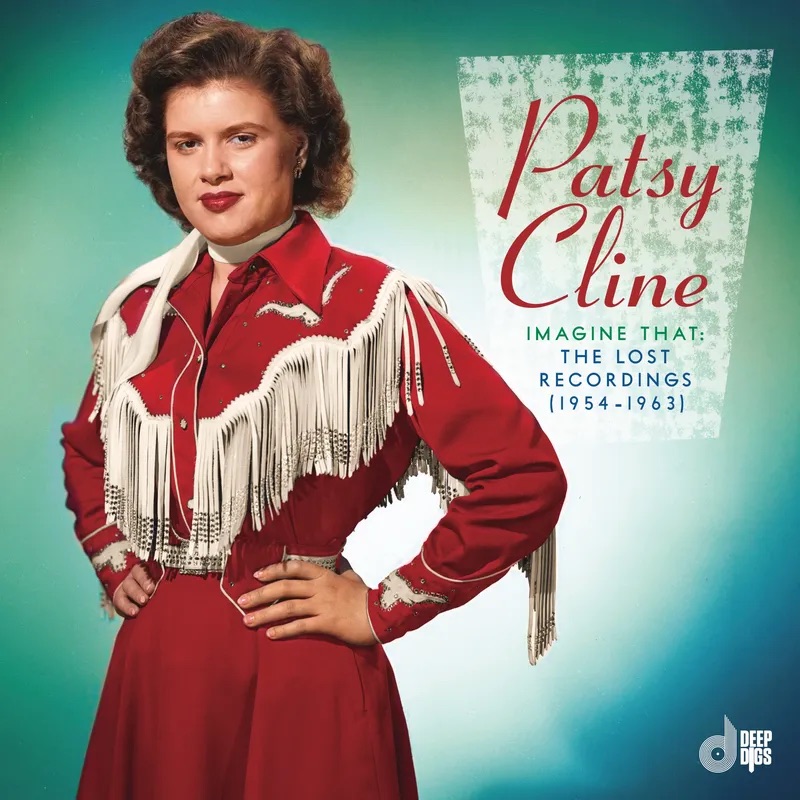
Patsy Cline, Imagine That: The Lost Recordings 1954-1963 (ELEMENTAL/DEEP DIGS)
I won’t swear to anything, but I’m nearly certain this is the legendary chanteuse’s first RSD showing and a prime example of classic country entrée into this vinyl-forward holiday. And with over 50 rarities (including 15 new songs), Imagine That is the holy grail of Cline music. The package’s finest asset is hearing her clarion-clear voice, big and bold, dating back as early as when she was just the new gal singing before Bill Peer’s Melody Boys back in 1954 and as part of the legend of her though-lost “missing middle” period recordings. Freshly picked versions of hits such as “Crazy” and “I Fall to Pieces” are just different enough from their originals to warrant a casual purchase, but it’s hearing never-before-released songs such as “Old Lonesome Time” and “The Wrong Side of Town” that will spin your head around Exorcist-style. Lainey Wilson and Morgan Wade take note: There’s a new big-voiced sheriff in town, and she’s not even alive to steal back your CMAs.
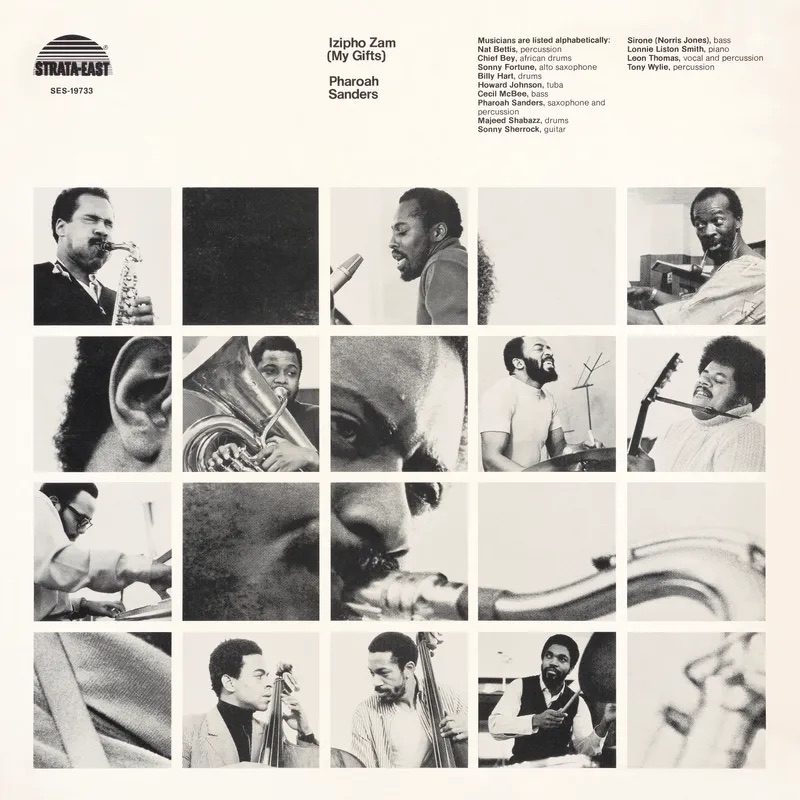
Pharoah Sanders, Izipho Zam (My Gifts) (STRATA-EAST/MACK AVENUE)
The spiritualized Pharoah Sanders renaissance that started when the saxophonist-composer teamed with organist Joey DeFrancesco for 2019’s In the Key of the Universe and with Floating Points and the London Symphony Orchestra for 2021’s Promises continues with this RSD masterpiece. Recorded in 1969 after John Coltrane's death, Sanders’ towering work reeks of Coltrane’s open, rainbow-toned spirit on tracks such as “Prince of Peace” (check out Leon Thomas’ singing here), the gorgeously moody meditation "Balance,” and the 28-minute title track with its marriage of harmony and frazzled dissonance. Ripe with West African percussion from Chief Bey, ritualistic chanting, and the collaboration of other free-jazz giants such as Billy Hart, Lonnie Liston Smith, Sonny Sharrock, Cecil McBee, Sonny Fortune, and tuba player Howard Johnson (that’s right, free-tuba jazz), this weighty, 180-gram vinyl package and every memento within it is truly a gift.
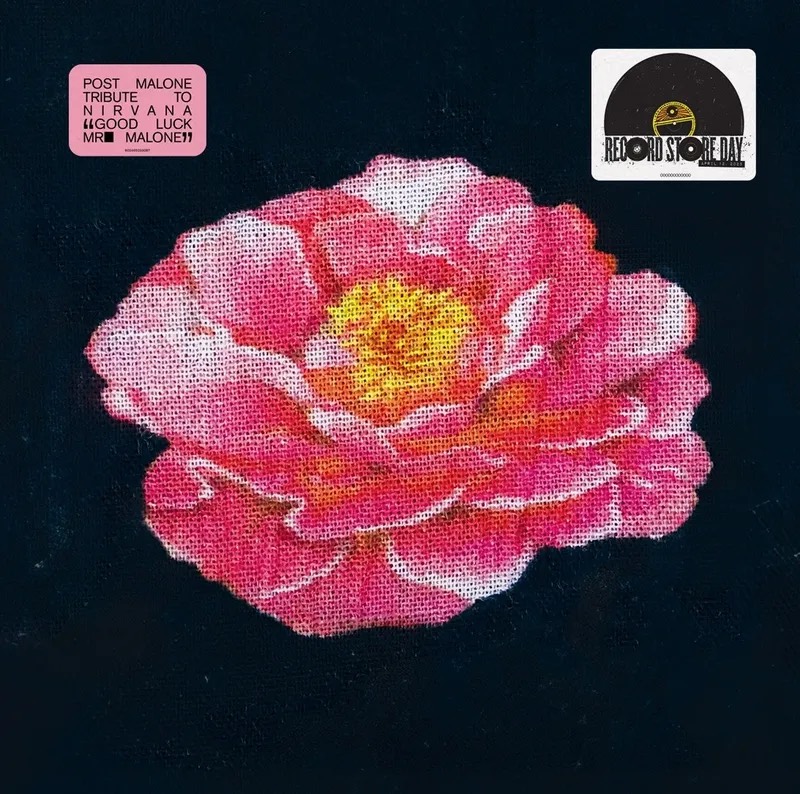
Post Malone, Tribute to Nirvana (REPUBLIC)
Nirvana originators Krist Novoselic, Dave Grohl, and Pat Smear have made themselves available to back everyone from Paul McCartney to Kim Gordon lately (and even Violet Grohl for the sake of familial authenticity). So, what made hillbilly-hop hero Post Malone and his 2020 livestream tribute to Nirvana co-starring blink-182’s Travis Barker, guitarist Nick Mack, and bassist Brian Lee special enough to warrant a yellow vinyl RSD release? For one thing, all of the Tribute sales’ net proceeds go to MusiCare’s Addiction Recovery/Mental Health division. Worthy cause. For another, Malone and co. deconstructed 14 Kurt Cobain songs that aren’t “Smells like Teen Spirit” and gave them real corrosive heft, funky twang, and a generosity of the soul I haven’t heard anyone else manage while covering other classics like “Heart Shaped Box,” “About a Girl,” and “Lithium.” I’ll bite.
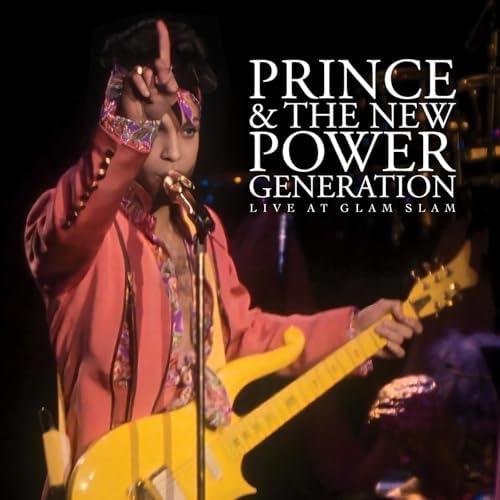
Prince & the New Power Generation, Live at Glam Slam (LEGACY)
When the Diamonds & Pearls deluxe box was released in 2023, Prince fanatics focused (rightly so) on the wealth of alternative versions and outtake rarities from what was arguably the Purple One’s last great full album, leaving its full concert capture of Prince & the NPG previewing their then-newest album at Glam Slam in January 1992 largely overlooked. For RSD 2025, the focus is back on the bold Black-rock and undulating funk of the guitarist-singer and his big band going live on “Jughead” and “Thieves in the Temple.” Along with an immensely soulful cover of Sinead O’Connor’s cover of Prince’s own “Nothing Compares 2 U,” the James-Brown-in-distress mess of “Sexy M.F.,” and a swollen, breathy pop medley of “Cream,” “Well Done,” “I Want U,” and “In the Socket,” these six sides of yellow vinyl feature a Diamonds & Pearls cover etching on side six.
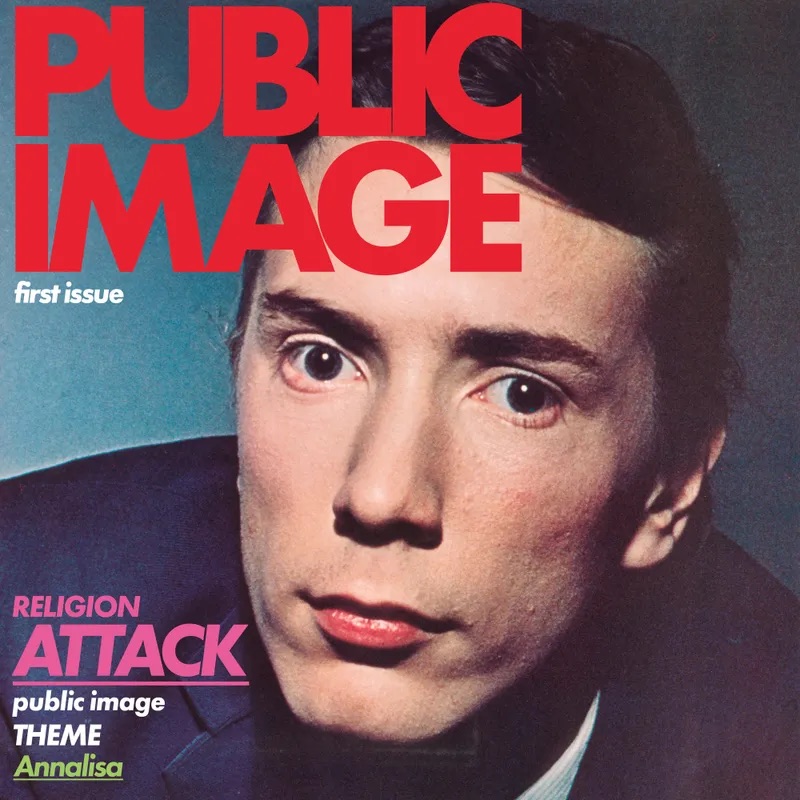
Public Image Limited, First Issue [US Version] (RHINO)
Freshly liberated from the Sex Pistols and the “Johnny Rotten” tag after a debut American tour, John Lydon set about remaking himself as a new young king of atonal dub-inspired krautrock on Metal Box with “corporate” cohorts Jah Wobble and Keith Levine. But not before making a pit stop at punk’s edge with PiL’s First Issue, something that oddly only got a UK/Euro release at the time. What happened? Warners in the US wanted a springier mix and a less aggressive cover stare-down from Lydon. PiL obliged, yet the label still didn’t release First Issue—until now. This true introduction to post-punk comes with that livelier un-death disco mix and its alternate artwork intact—and just in time for the Rotten-less Pistols to make their live debut in the States.
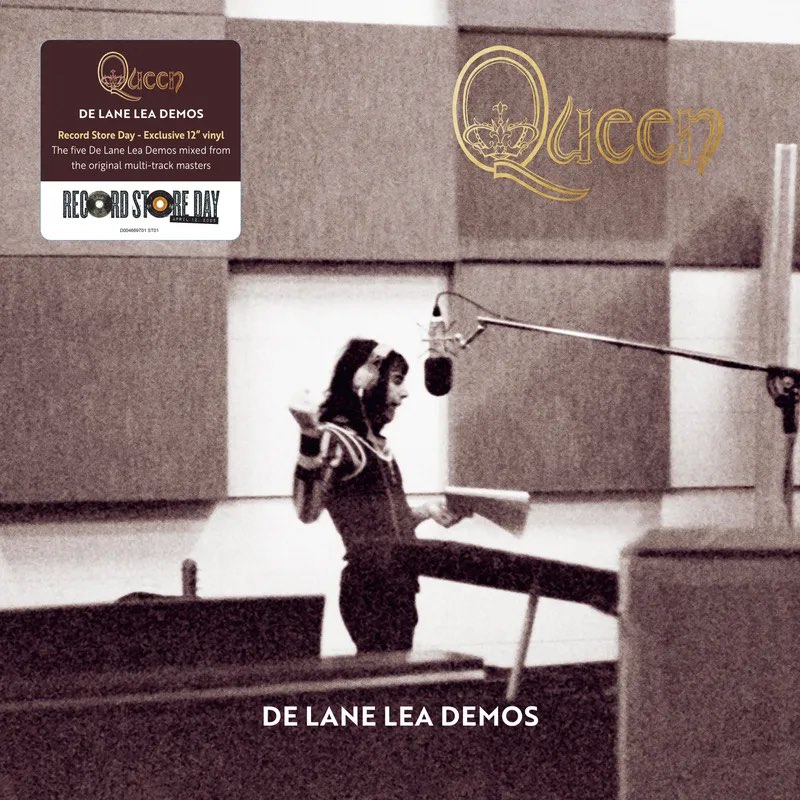
Queen, De Lane Lea Demos (HOLLYWOOD)
Recorded at London-then-Wembley’s famed De Lane Lea Studios in December 1971 and January 1972, these five early Queen demos have forever been the stuff of legend. After having recorded at De Lane as Roger Taylor and Brian May’s pre-Queen ensemble, Smile, the freshly minted quartet was brought in to test the boards at its new studio space, and were rewarded with this demo as payment: a juicy, thick, open-drum set of rough-hewn, more natural-sounding tracks (including their eventual smash hit anthem, “Keep Yourself Alive”), all taken down a notch from their glam-slamming final editions. Queen doesn’t involve themselves in RSD often, so this is a must-have for Freddie Mercury fans and vinyl fanatics.
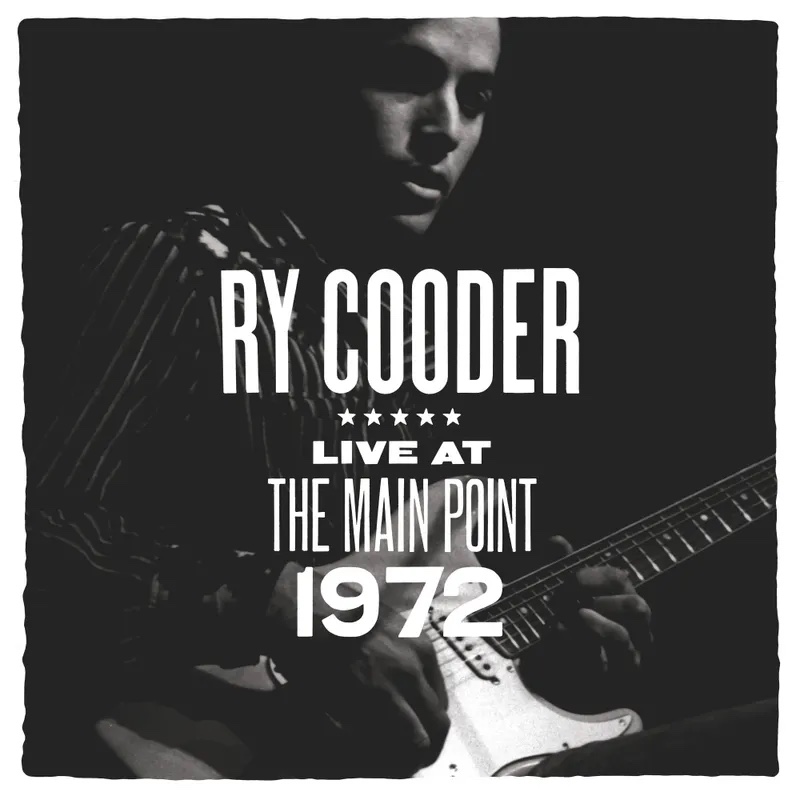
Ry Cooder, Live at The Main Point 1972 (RHINO)
With guitarist, composer, and Buena Vista Social Club producer Ry Cooder having been with Rhino’s corporate partner Warner Brothers forever, it’s shocking that this is his first-ever archival release from their vaults. It is, however, a bold one: an early-’70s gig at The Main Point in Bryn Mawr, Pennsylvania, featuring a rustic handful of his tangiest blues moments (“Police Dog Blues,” “Someday Baby Blues”), a few of his usual oddball, nearly arcane storytelling sessions (“Jesus on the Mainline,” “F.D.R. in Trinidad”), and a cover of the only track Captain Beefheart has a hit with, “Ditty Wah Ditty.”
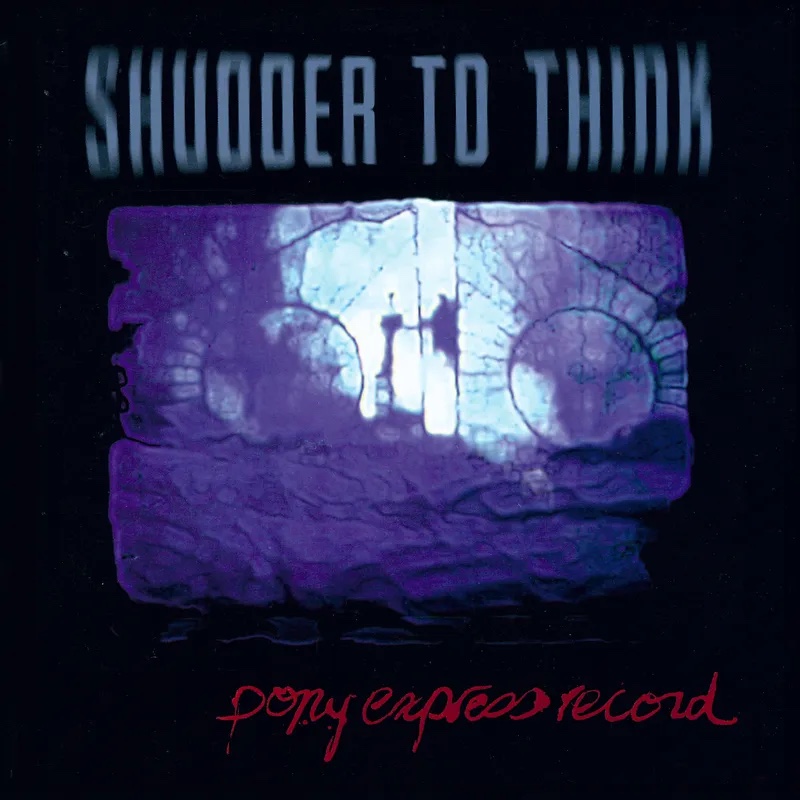
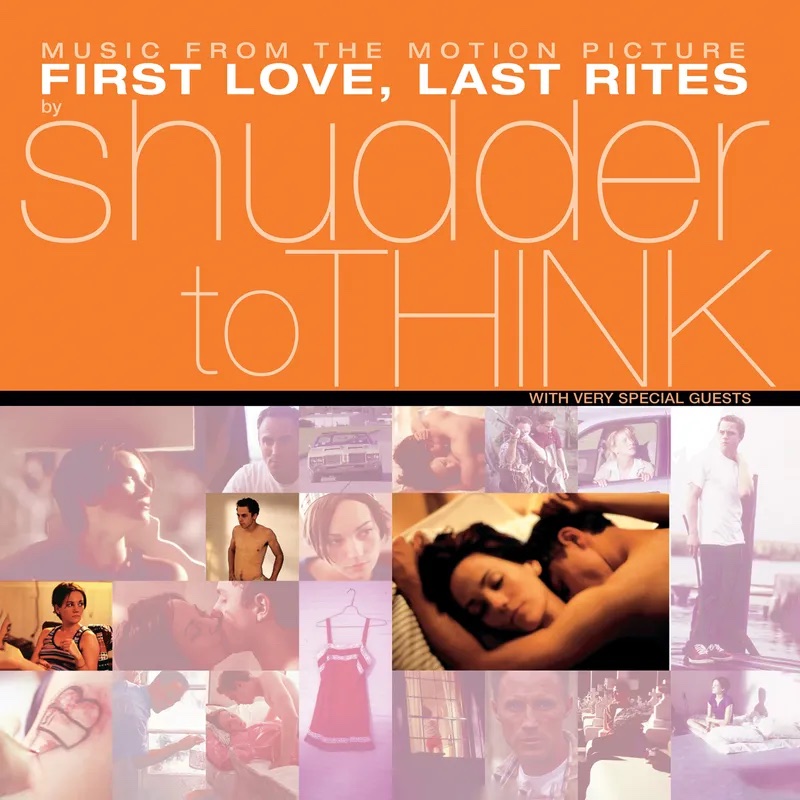
Shudder to Think, Pony Express Record + First Love, Last Rites (LEGACY)
Thirty years after their major-label debut with Pony Express Record, it’s time that the only DC post-hardcore band to sound like Queen recording Raspberries songs finally earns flashily theatrical songwriting singers Craig Wedren and Nathan Larson some flowers (especially now that Shudder reunited in March and debuted a new song, “Playback”). With RSD 2025’s version of the LP, you get five bonus tracks recorded live to 2-track that now join the illustrious glam-hammy likes of “Hit Liquor” and “French Tee Shirt.” And since Larson, Wedren, and bassist Jherek Bischoff are long accomplished film and television soundtrack composers, having the music from Jesse Peretz’s 1997 flick First Love, Last Rites—written and played by Shudder with guest singers such as The The’s Matt Johnson, Cheap Trick's Robin Zander, Smashing Pumpkins' Billy Corgan, Jeff Buckley, Liz Phair, and Nina Persson—is a gloriously whack alt-glam ’90s fever dream come to life.
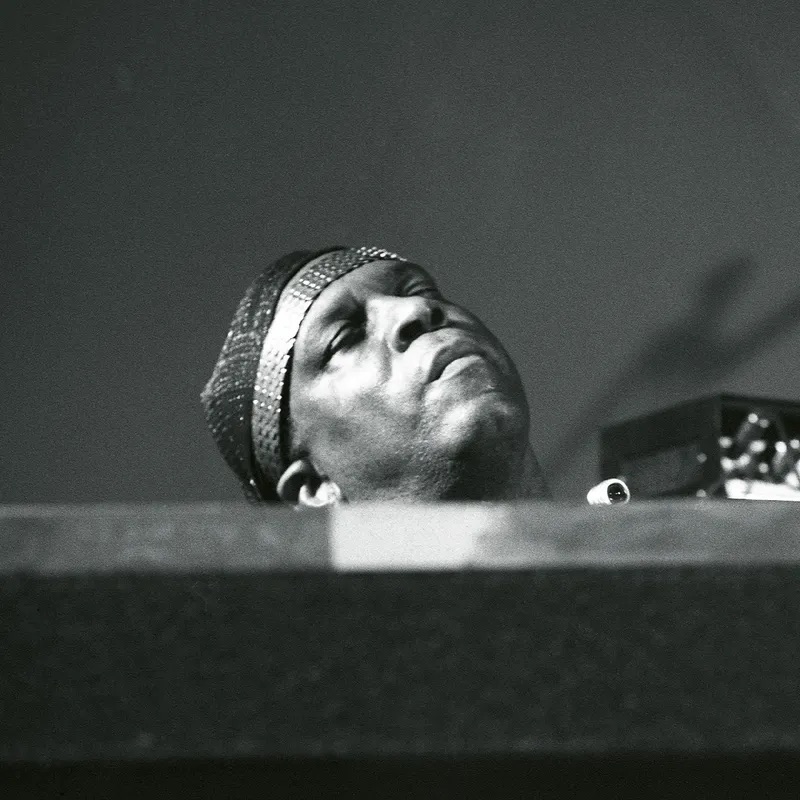
Sun Ra, Nuits de la Fondation Maeght [Deluxe Edition] (STRUT)
In the same way that the Grateful Dead’s RSD 2025 Beacon live vinyl is legendary for its psychedelic stretch and sonic quality, so, too, is the warm-ray-spreading sound of Sun Ra and his Arkenstra’s Fondation Maeght recordings from two nights in August 1970. For all of Sun and co.’s space-is-the-place branding and wide-vision reputation, these shows were the first time they’d left the shores of North America. Finally, then, the aliens had landed and side-long carnival medleys (six albums’ worth, too) could finally be enjoyed by continental drifters. Now, packed into a thick hardboard box with a slick reprint of the original festival program and restored photos by renowned snapper Philippe Gras, Sun Ra’s new collection is one of RSD 2025’s biggest draws.
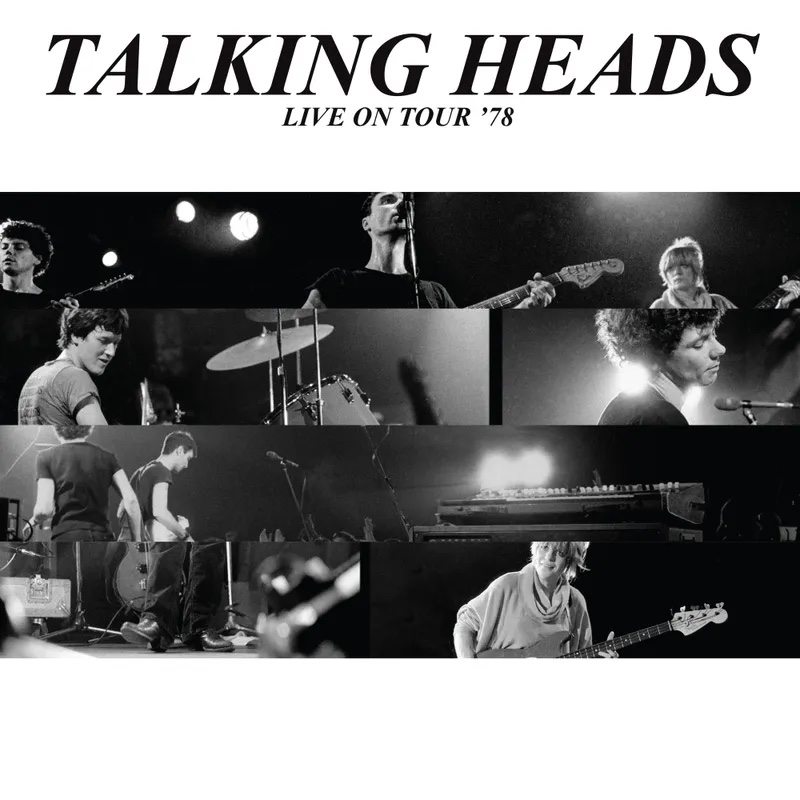
Talking Heads, Live on Tour (SIRE)
Once upon a time, when FM radio stations still used vinyl libraries for their self-created playlists, record companies would tape their own live shows for exclusive promotional airplay. Recorded at the Agora in Cleveland on December 18, 1978, Talking Heads’ Live on Tour is one of the best examples of this, published as it was as a promo-only LP for radio broadcast in 1979, never to be released commercially. As Talking Heads were a red-hot FM commodity on the heels of their first album and “Psycho Killer” in 1978, recording their then-fresh, Eno-produced More Songs About Buildings and Food while early in that second record’s tour spelled gold for all concerned. Little did radio programmers realize just how spookily ambient the crevices of new album mini-epics such as “Artists Only” and “Warning Sign” would be, or how “Electricity (Drugs)” sounded as if David Byrne was choking, gasping for breath and dear life. Yeah, that’s how good Live on Tour is—now remastered from Sire’s original analog tapes, with one previously unreleased track, stretched into two LPs, and cut for shiny sonic brilliance at 45 rpm.
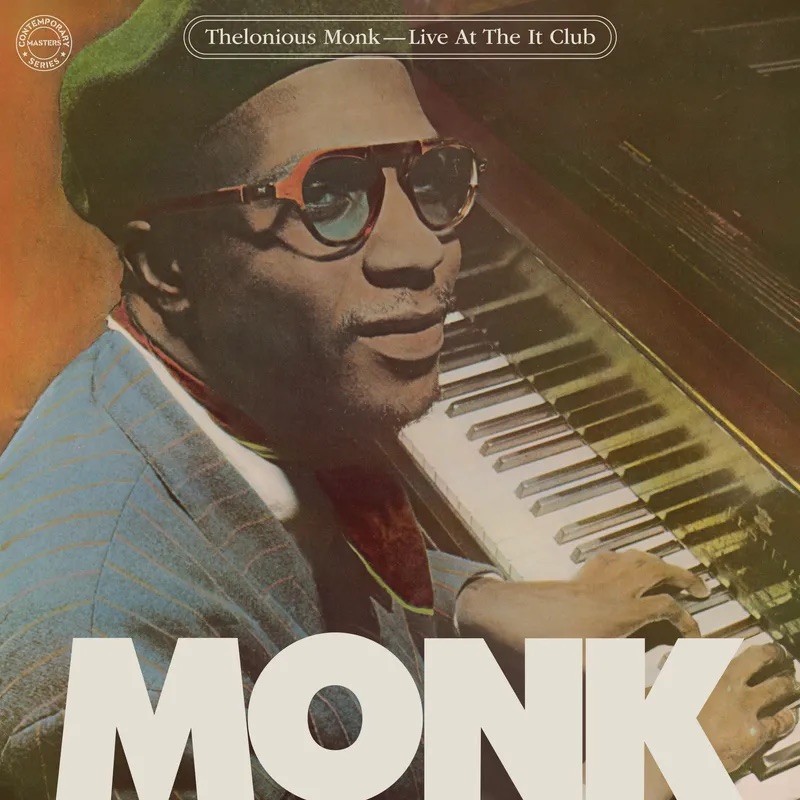
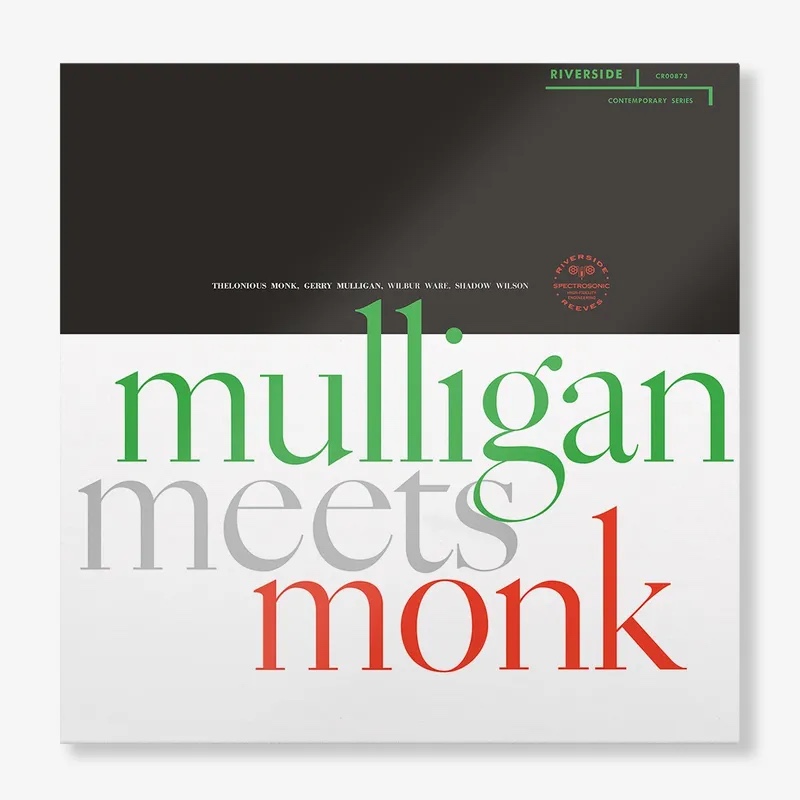
Thelonious Monk, Live at The It Club (LEGACY)
Thelonious Monk & Gerry Mulligan, Mulligan Meets Monk (CRAFT)
If you’re prepared to dive deeper into the nuances of how Theloneious Monk improvised with differing muscular saxophonists (his stalwart tenor man and the hero of hard bop Charlie Rouse and cool-jazz baritone sax boss Gerry Mulligan) on his saltiest, signature compositions such as “’Round Midnight,” “Rhythm-a-Ning,” and “Straight, No Chaser,” then 2025 is just your RSD. Audiences of 1957 may have been ill-prepared for Riverside’s dizzying array of cool and hot sounds for Mulligan Meets Monk, but in this rare mono mix, that blend comes more forcefully than it did stereo, blunter and sunnier. The It Club dates of 1964 (recorded in Los Angeles, the birthplace of cool jazz) is anything but. The roughhousing Rouse, bassist Larry Gales, and drummer Ben Riley stretch those aforementioned tracks into something snakier and elastic with dramatically halting pauses to spare. Still, Monk steals the show with his flat, funky ninths and his serious clowning. There are rarer Monk live sessions that Legacy could’ve released, but it’s nice to have a heavy new copy of It.
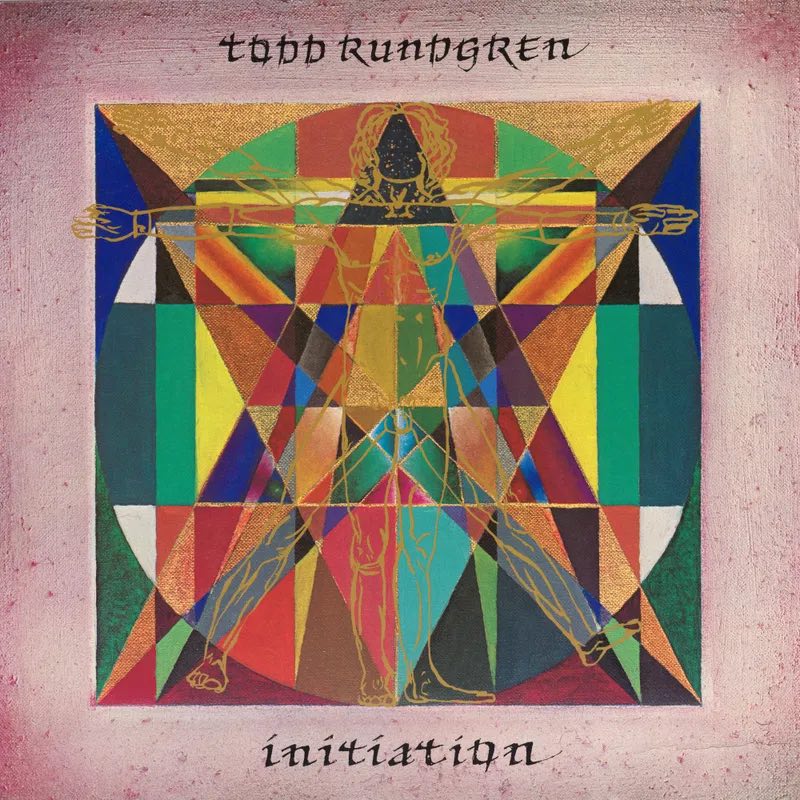
Todd Rundgren, Initiation (BEARSVILLE/RHINO)
It’s hard to believe that a Todd Rundgren album was long out of print, but yes, one of his more mystically thematic test-pattern R&B efforts dropped out of sight in 1987. The album’s famed length surely had something to do with this: At 67 minutes during vinyl’s first swing, Initiation sounded terrible, especially when you consider its experimental prog-rock complexities and prayerful side-long instrumentals, such as “A Treatise on Cosmic Fire.” Now, cut directly from Runt’s stereo analog tapes and pressed on two-colored vinyl (transcendental light blue, yet), Initiation sounds like the mix of soul, mysticism, and hazy cosmic jive that Rundgren intended—and then some.
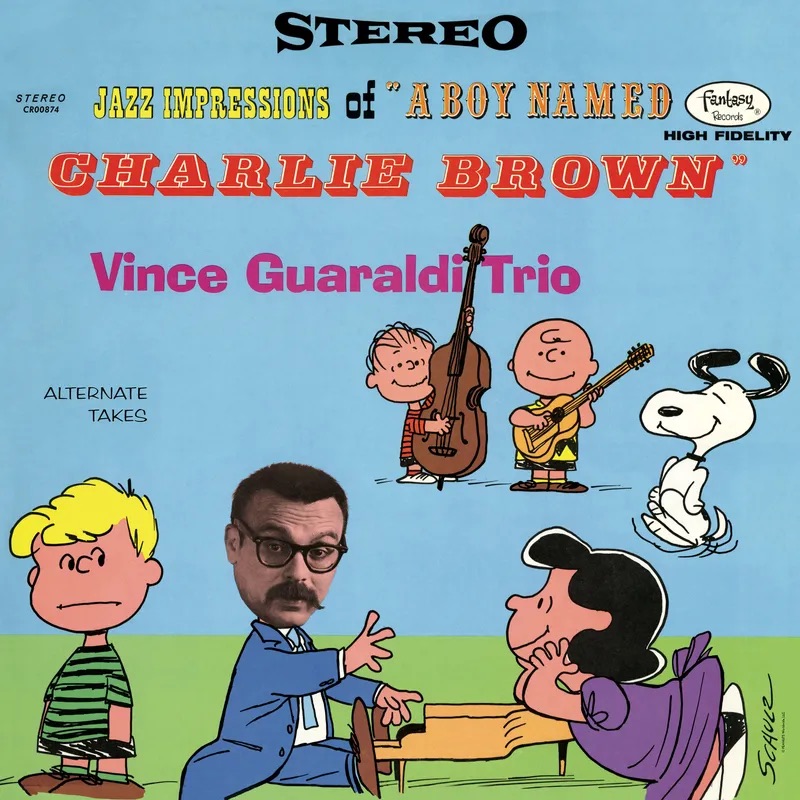
Vince Guaraldi Trio, Jazz Impressions of A Boy Named Charlie Brown: Alternate Takes (CRAFT)
Wait a second, are you saying that all of those other sophisticated, smoothly rhythmic Guaraldi & co. holiday soundtracks weren’t jazz impressions after all, and that this collection of alternate takes is? Or that the other Peanuts records weren’t impressionistic jazz? The mind reels. Anyway, this Boy’s sky-blue vinyl package comes with different versions of “Linus and Lucy,” “Baseball Theme,” and the “Charlie Brown Theme” that you remember from your childhood (or your child’s childhood), each sounding as delightful as the first day of spring.
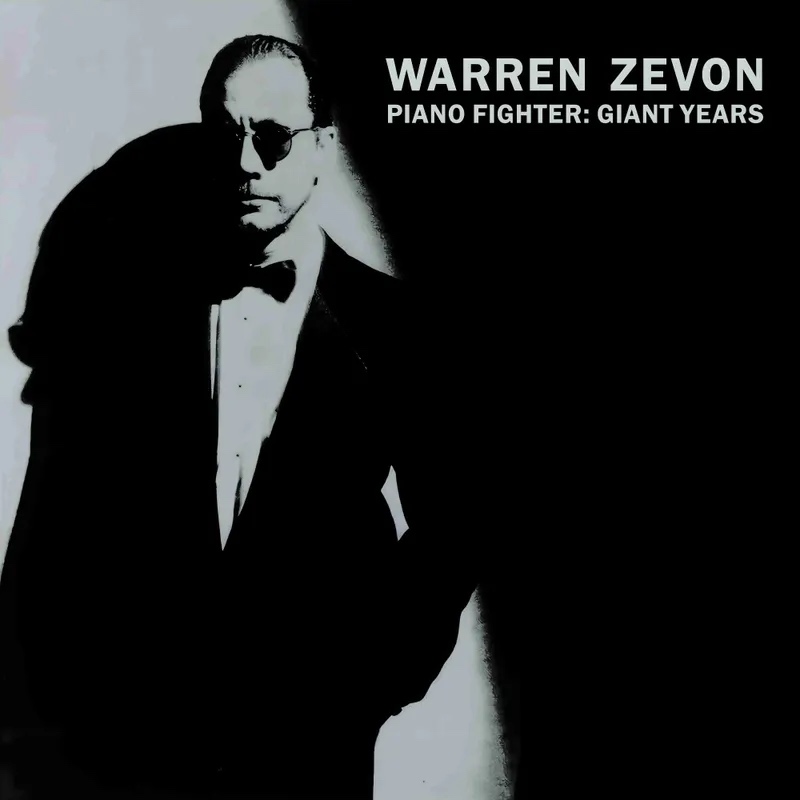
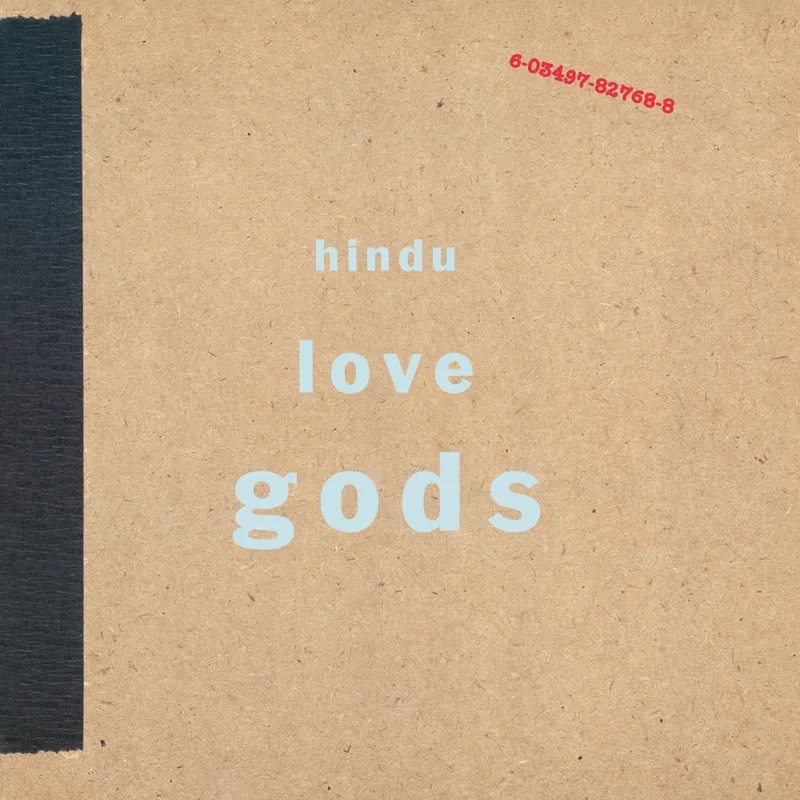
Warren Zevon, Piano Fighter: The Giant Years (RHINO)
Hindu Love Gods, Hindu Love Gods (RHINO)
The Warren Zevon albums represented by this RSD Piano Fighter box and his Hindu Love Gods collab with R.E.M. members Bill Berry, Peter Buck, and Mike Mills are fascinating not only due to the cranky film-noir-centric lyricist and melodicist’s move from his longtime home at Asylum to the then-new Giant label. Taken as a whole, these bracingly tough-minded songs with Zevon at his throaty vocal best envelop one full decade of his life—a sadly too-soon-to-end one, at that. Not that he realized he’d have to start enjoying every sandwich (as he told David Letterman in his last televised interview). There is, with every Zevon record eternal, a love-hate relationship with himself and his Damon-Runyon-on-ketamine characters that fill this box, such as the home-recorded “Rottweiler Blues” and “Seminole Bingo” (both co-written with dark comic novelist Carl Hiaasen) and the more full-bodied, aching likes of “Finishing Touches” or “Searching for a Heart” (both found on Mr. Bad Example).
As for the R.E.M.-backed all-covers album Hindu Love Gods, theirs was an extended partnership that started on the co-recording of Zevon’s Sentimental Hygiene, a session that got darker and bluesier the more drunk this makeshift quartet became. How else can you explain a crusty, woozy album that no one intended to release (Giant snuck it out without warning Zevon or R.E.M.) that features Prince’s “Raspberry Beret,” an elongated take on the Bo Diddley/Muddy Waters classic “Mannish Boy,” The Georgia Satellites’ “Battleship Chains,” and Woody Guthrie’s “Vigilante Man” all in one place? Oh, save for RSD 2025, that is.
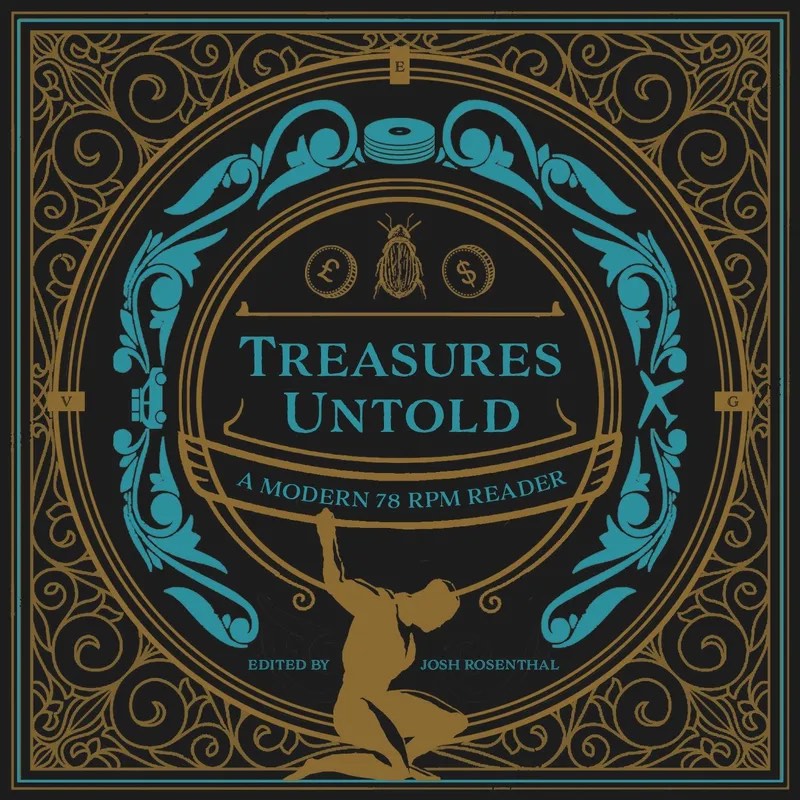
Various artists, Treasures Untold: A Modern 78 RPM Reader (TOMPKINS SQUARE)
For Record Store Day’s first-ever book, Josh Rosenthal’s Tompkins Square label puts the same love and ornamental dedication into packaging a 155-page publication about shellac 78s as he does his multi-volume vinyl sets. A limited edition of 1,000 numbered books with a foil stamp cover is highlighted by thoroughly engaging (and thoroughly researched) writings on the 78 by young record lovers (14-year-old collector Jay Burnett, guitarist-musicologist Nathan Salsburg) and older experts (Eli Smith from the Brooklyn Folk Festival) alike, as well as interviews with Ian Nagoski and Dick Spottswood. Treasures Untold tells all in an accompanying CD with 10 new recordings of 78-era favorites set to tape by Tompkins Square artists and friends, such as R. Crumb, Luther Dickinson, William Tyler, and—in one his last recordings before his death just days ago—freak-folk forefather Michael Hurley. There are many special releases coming for April’s Record Store Day, but none as unique as this in every way.

